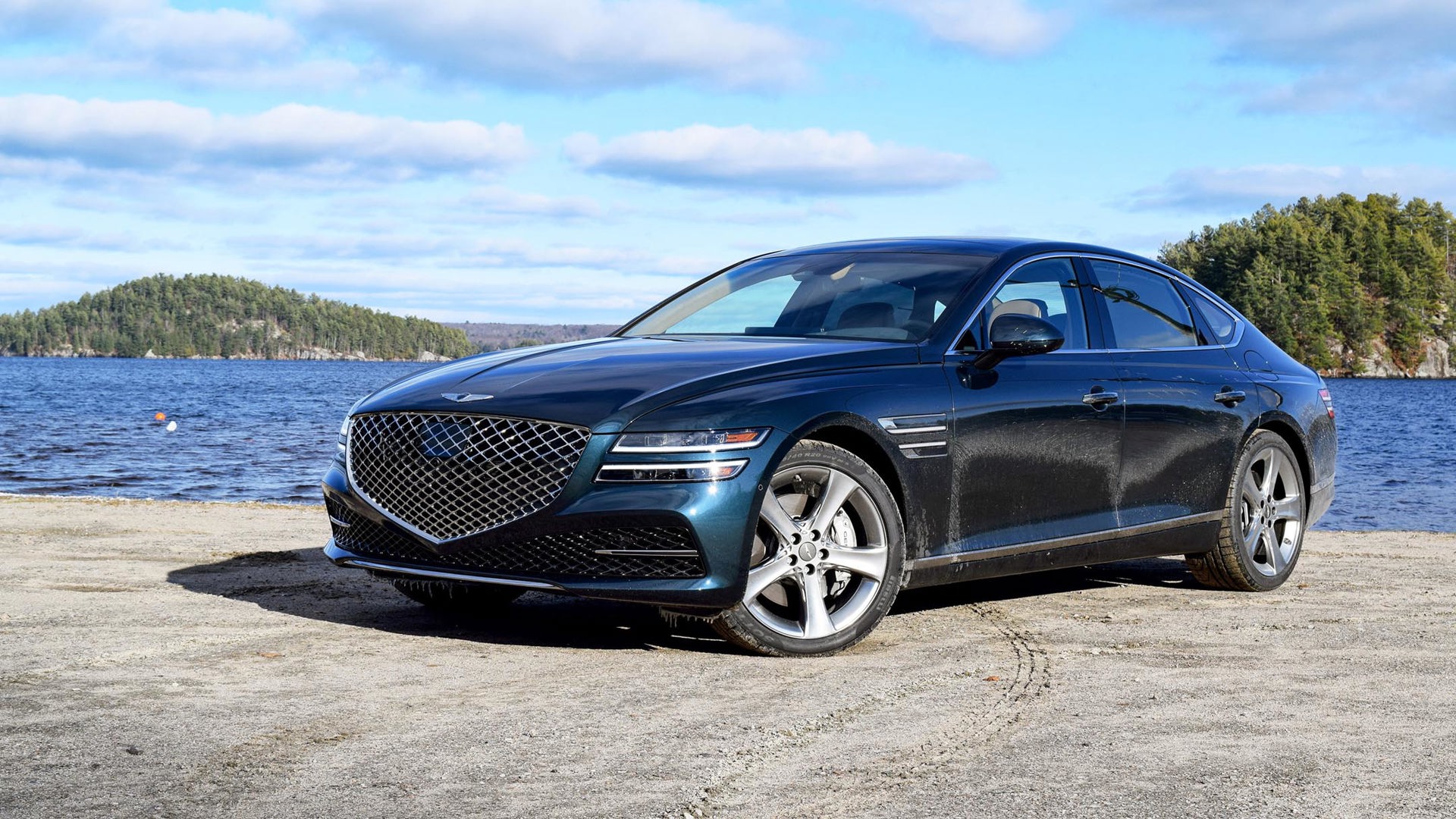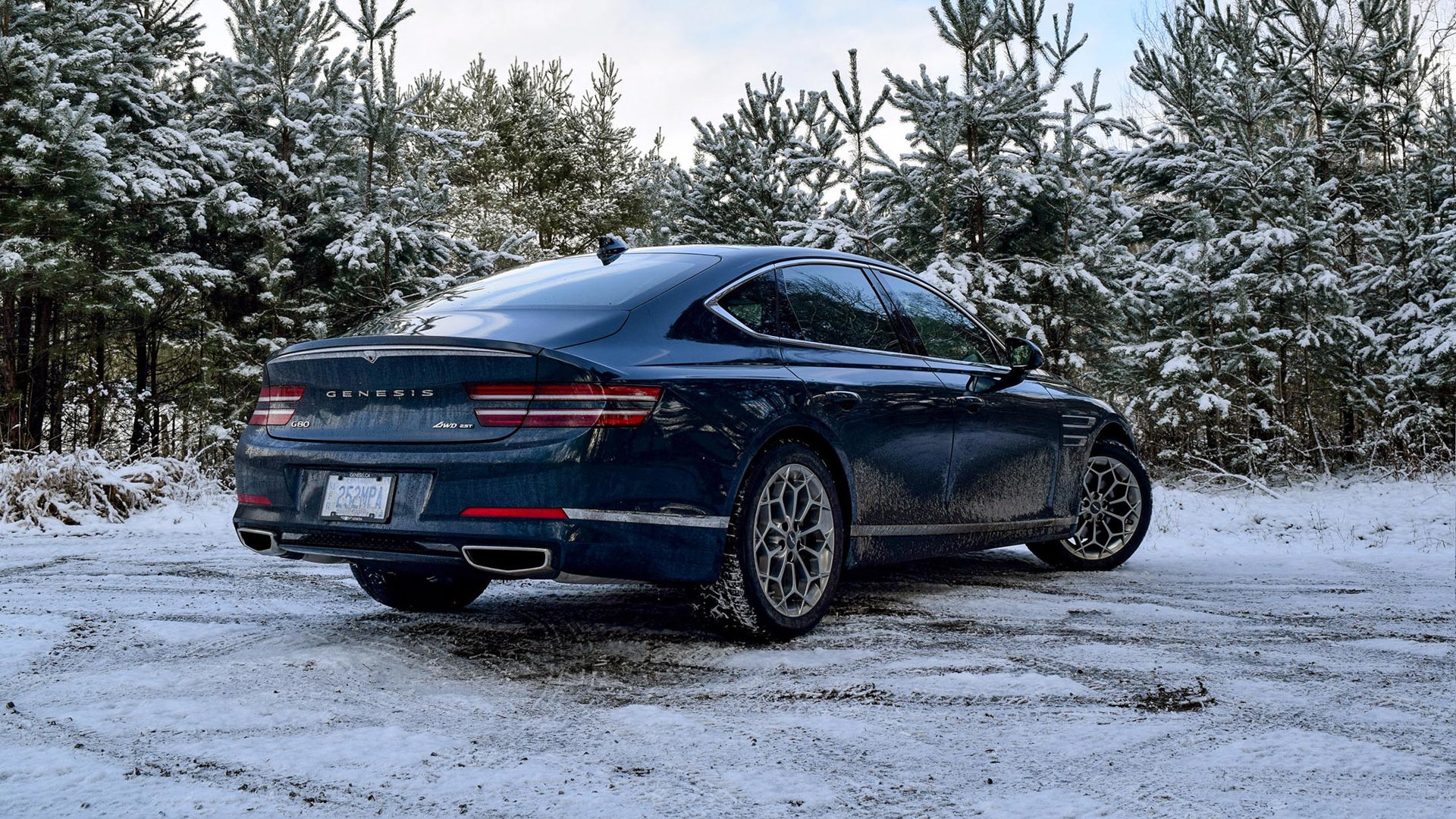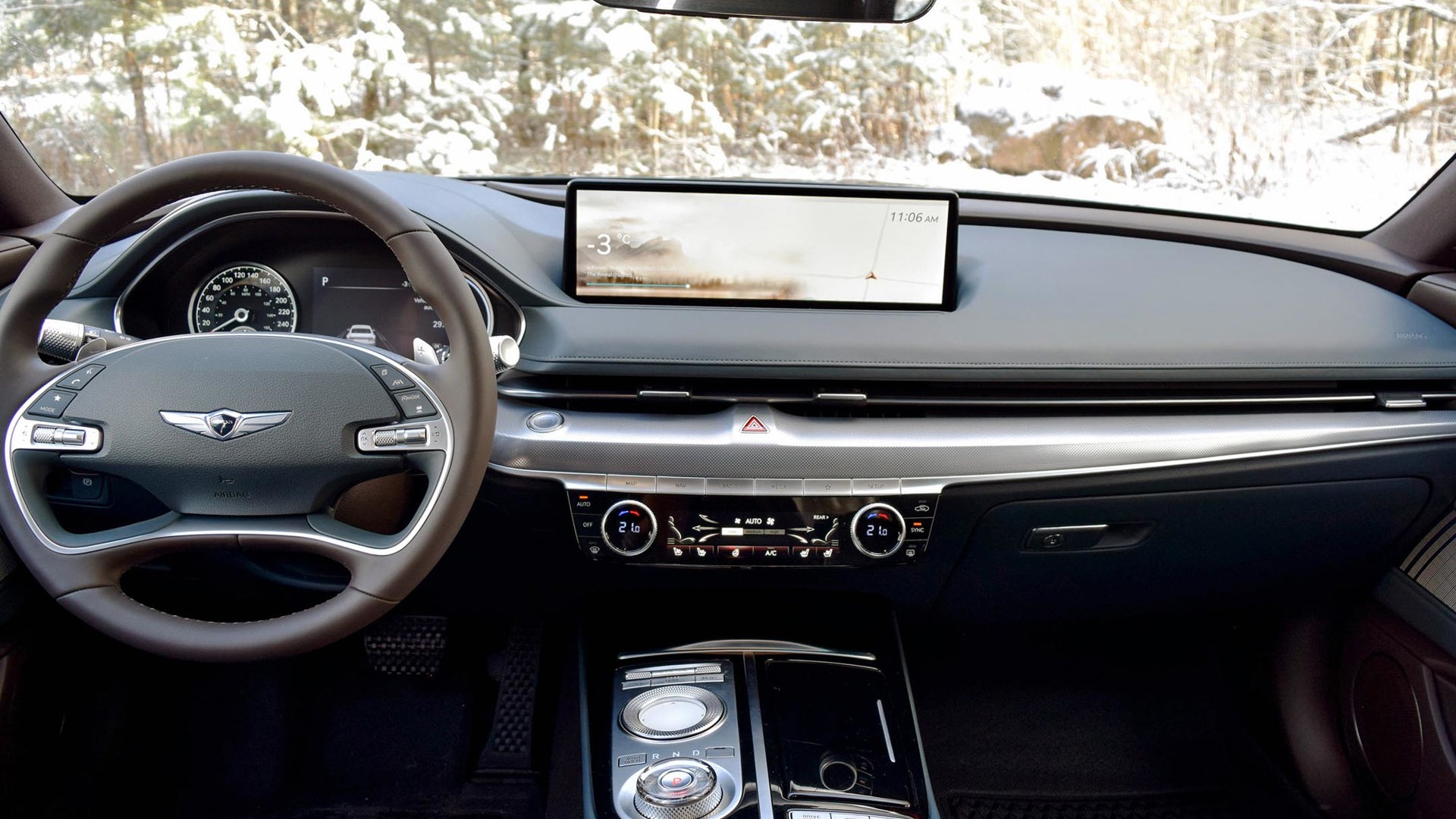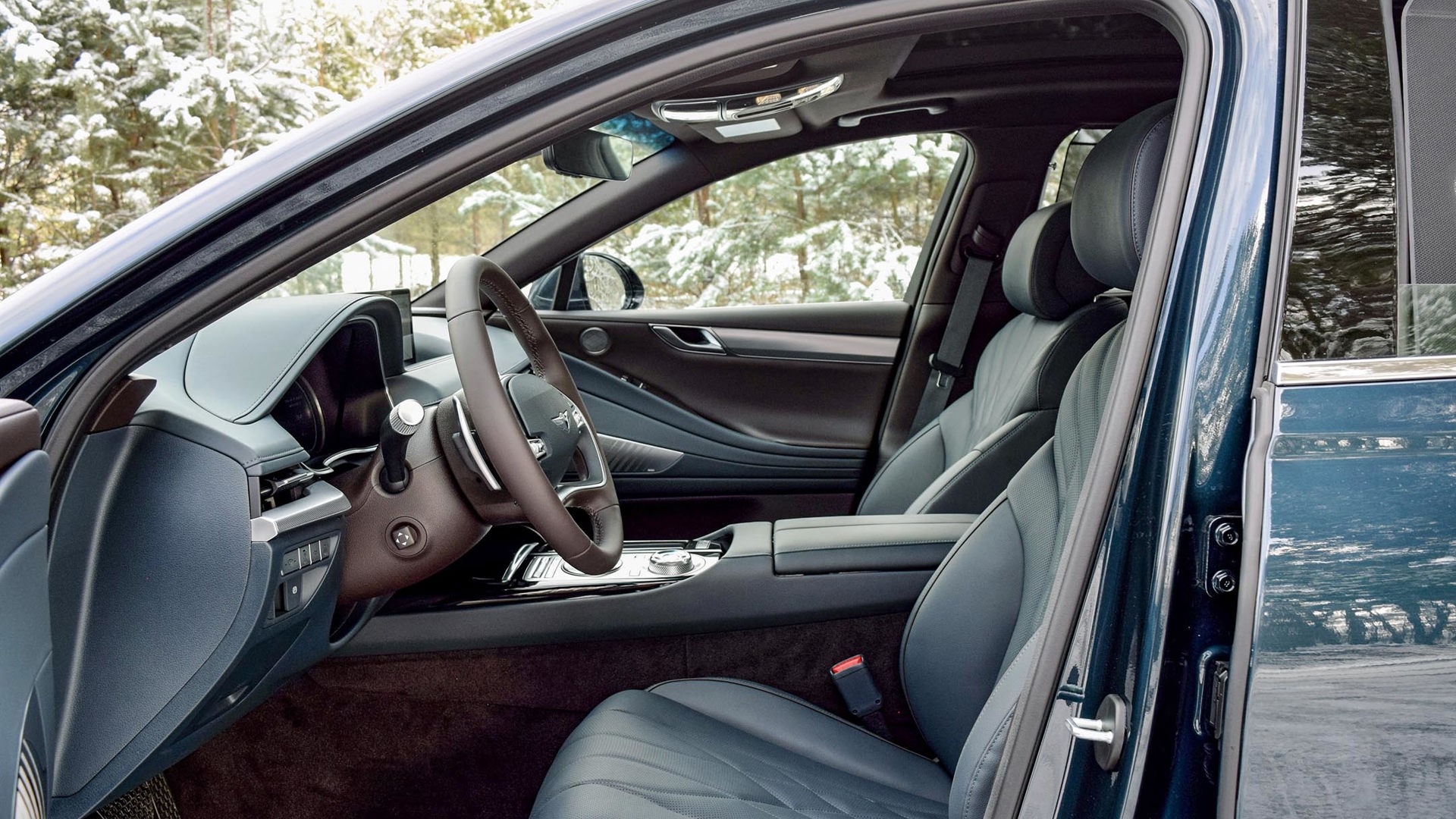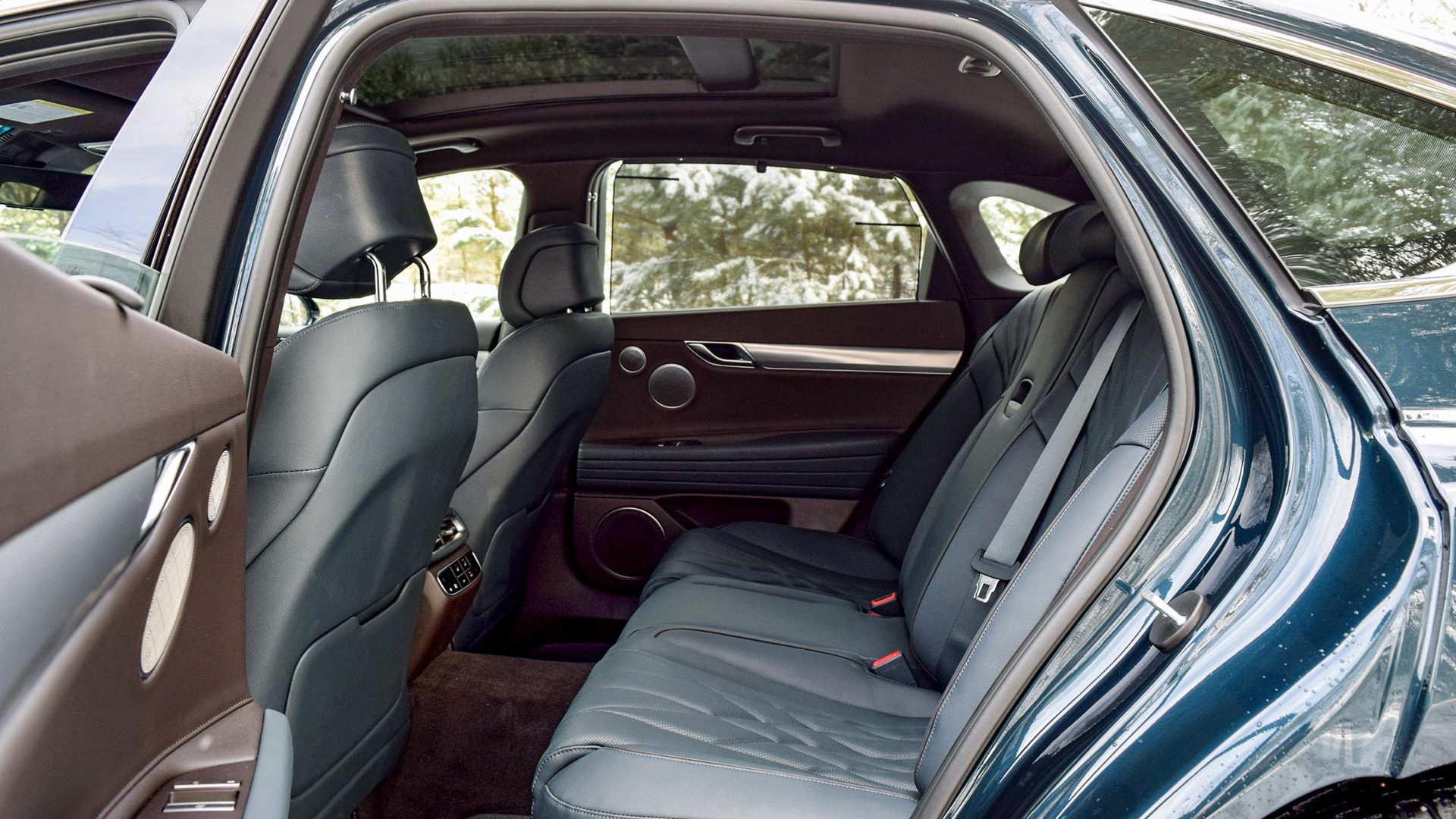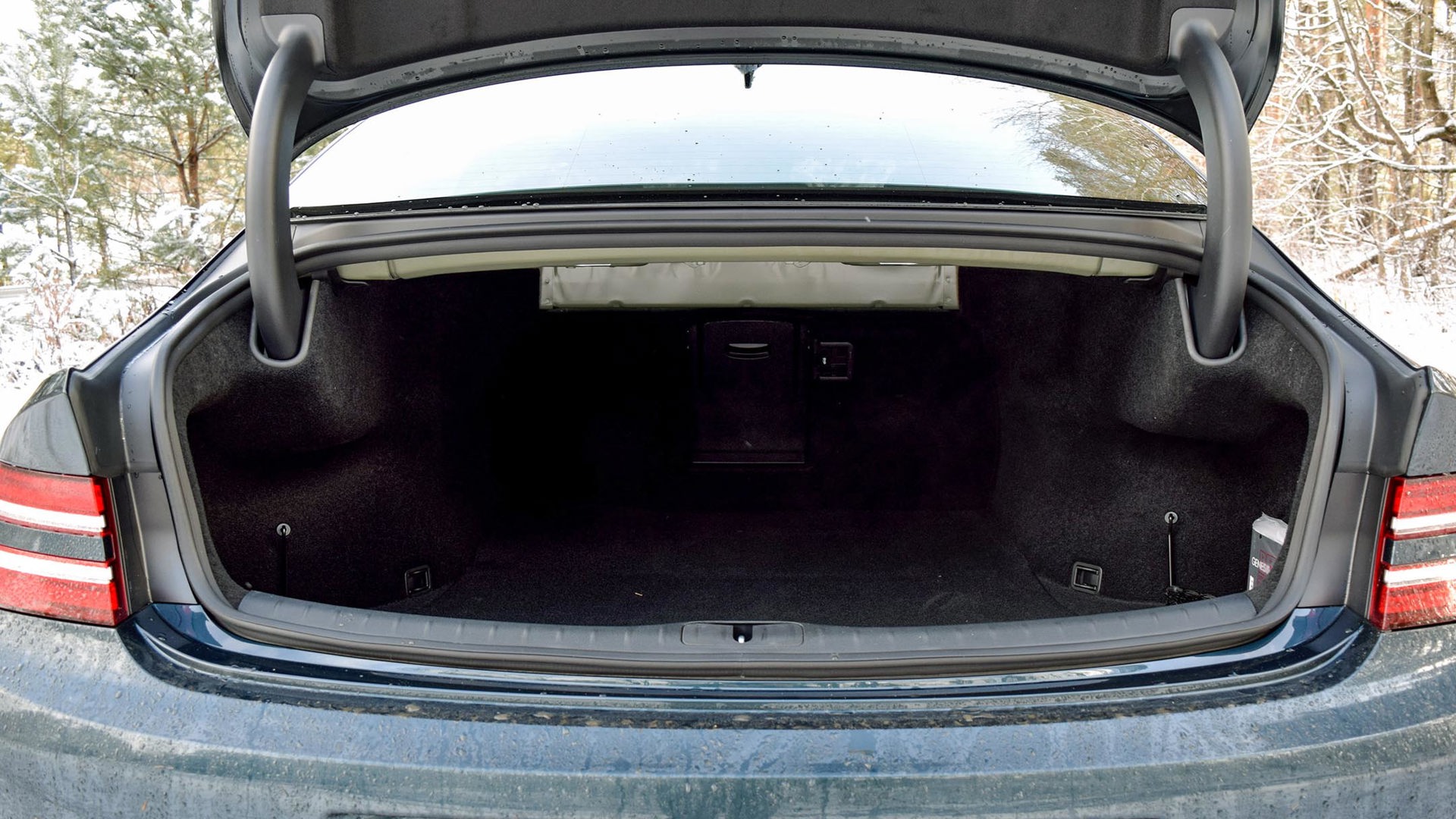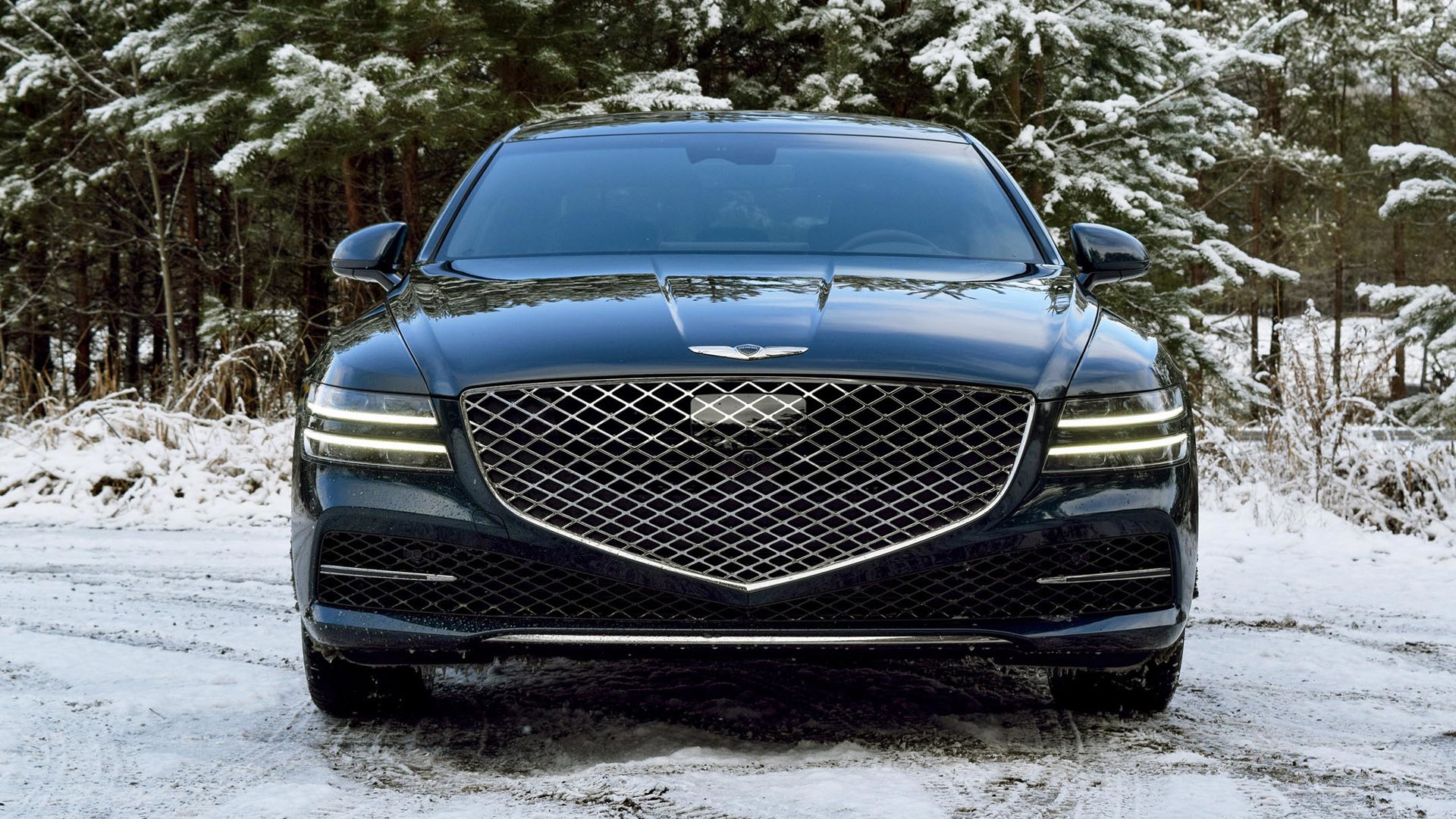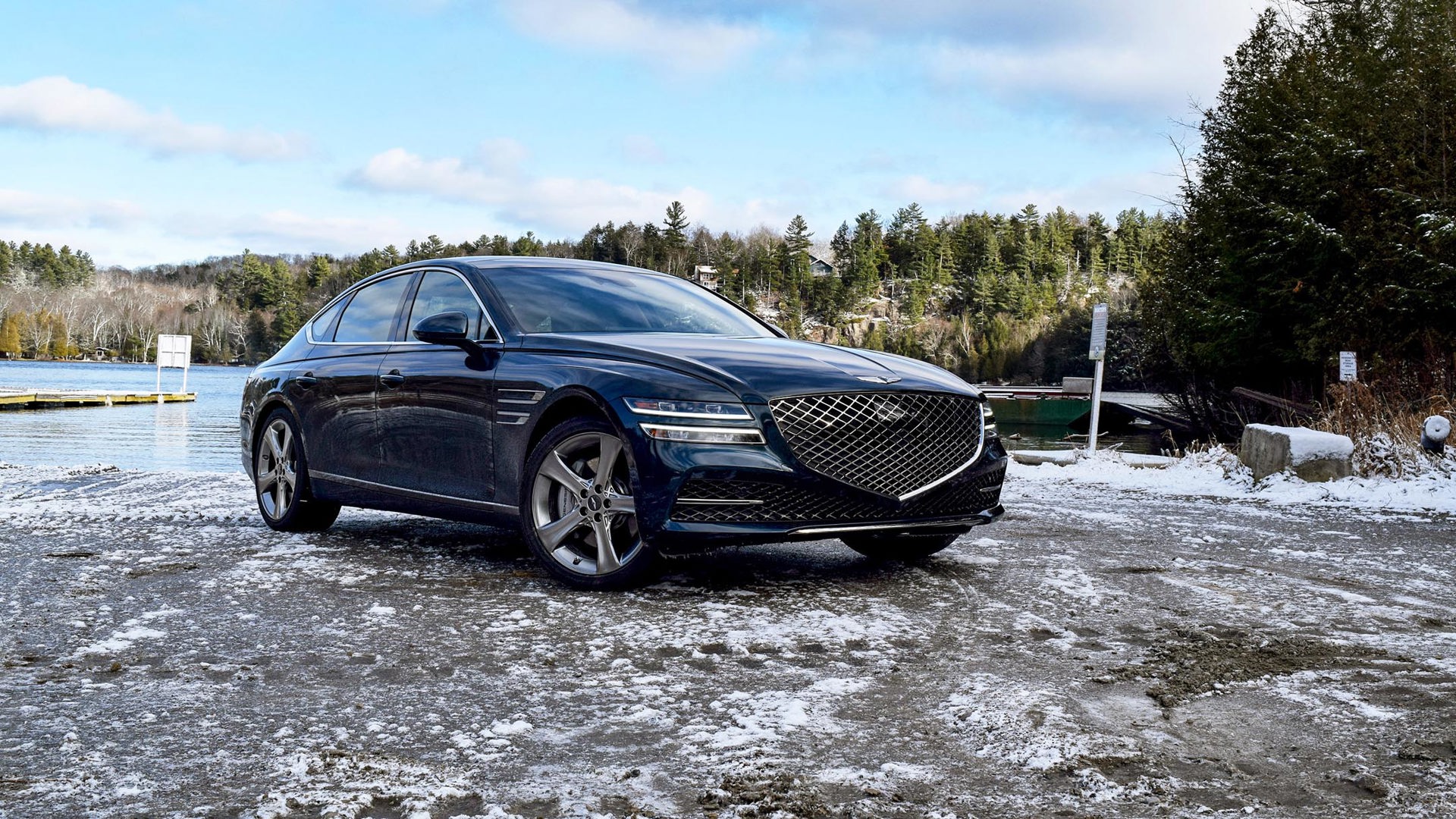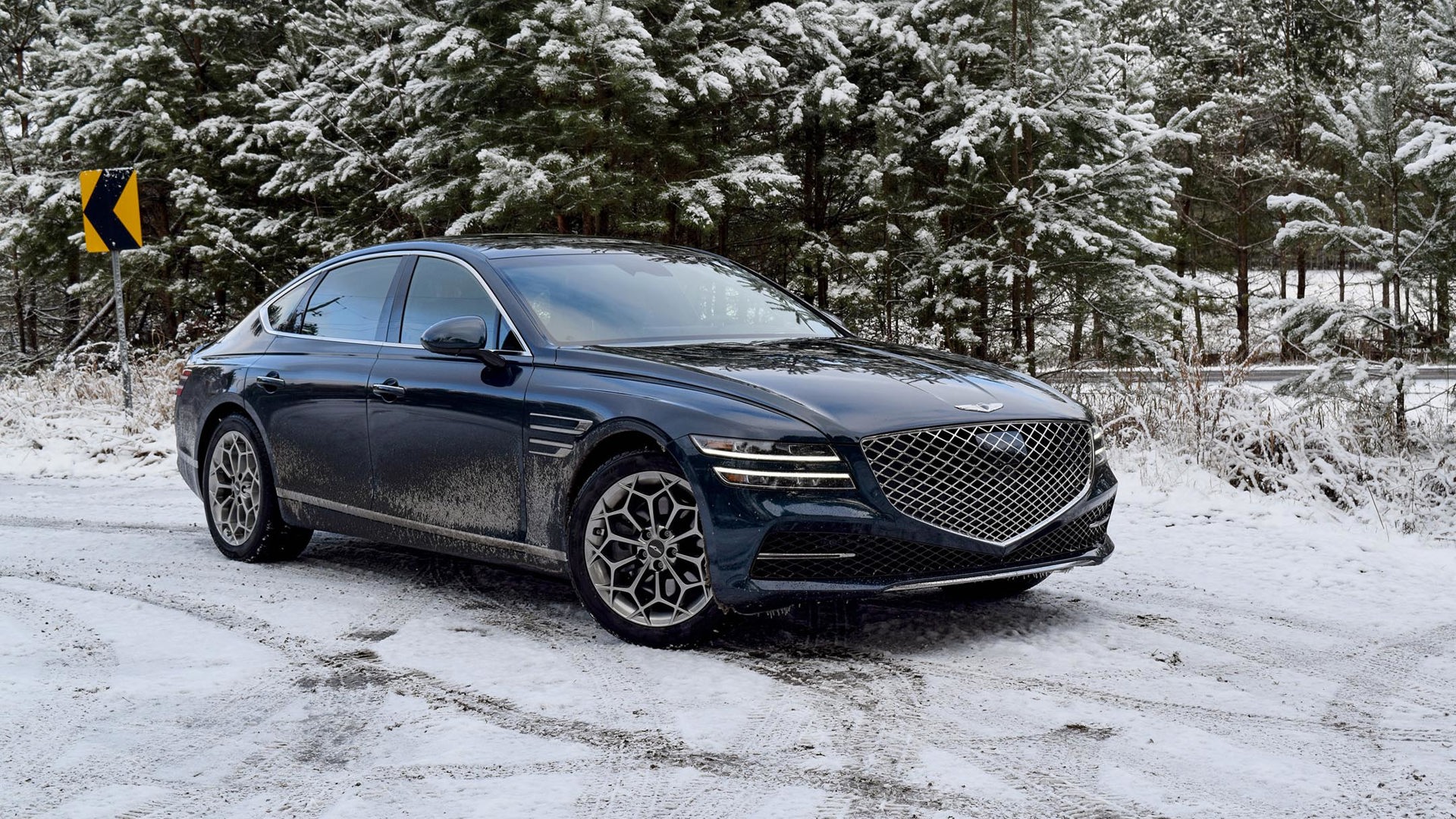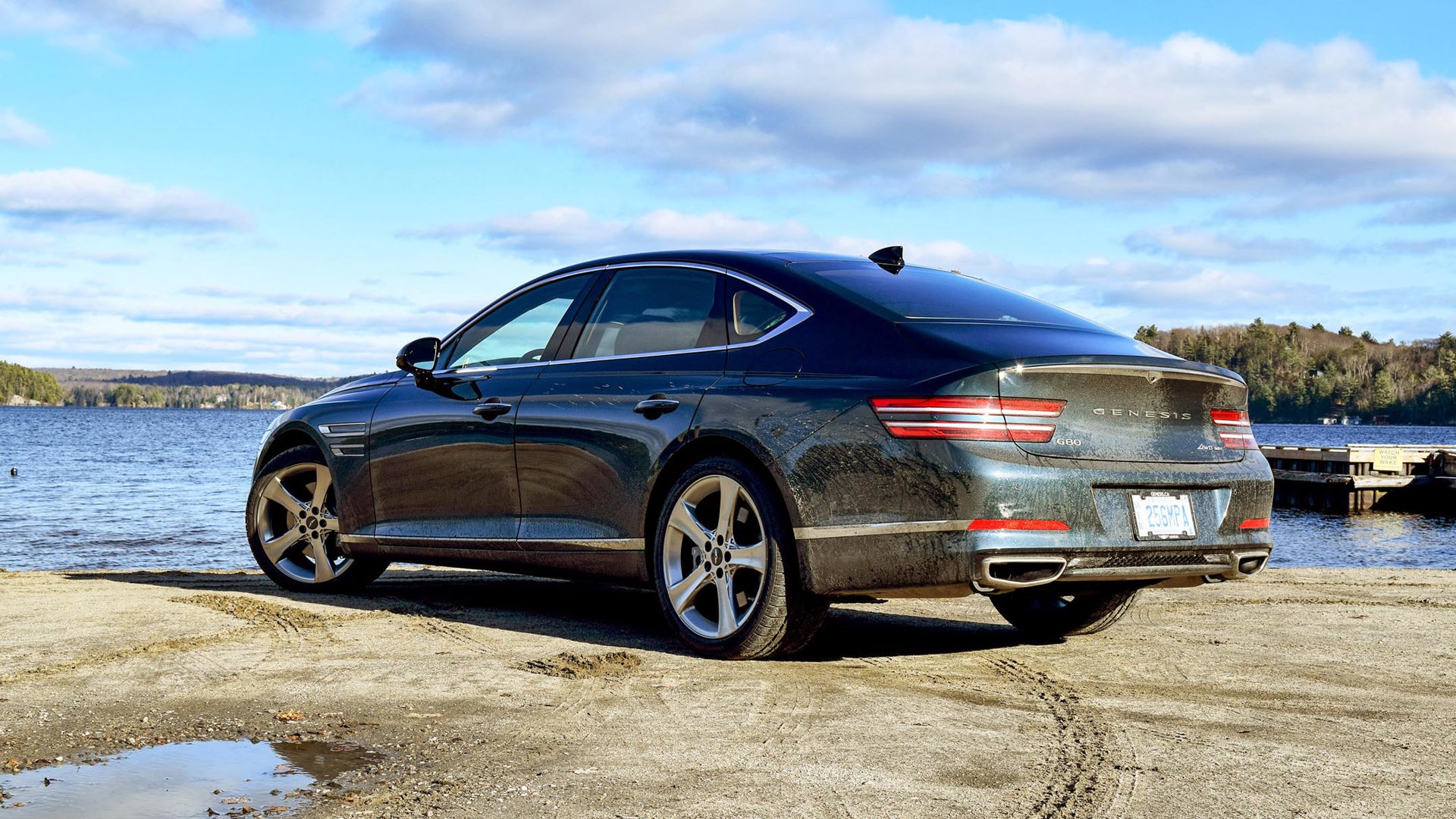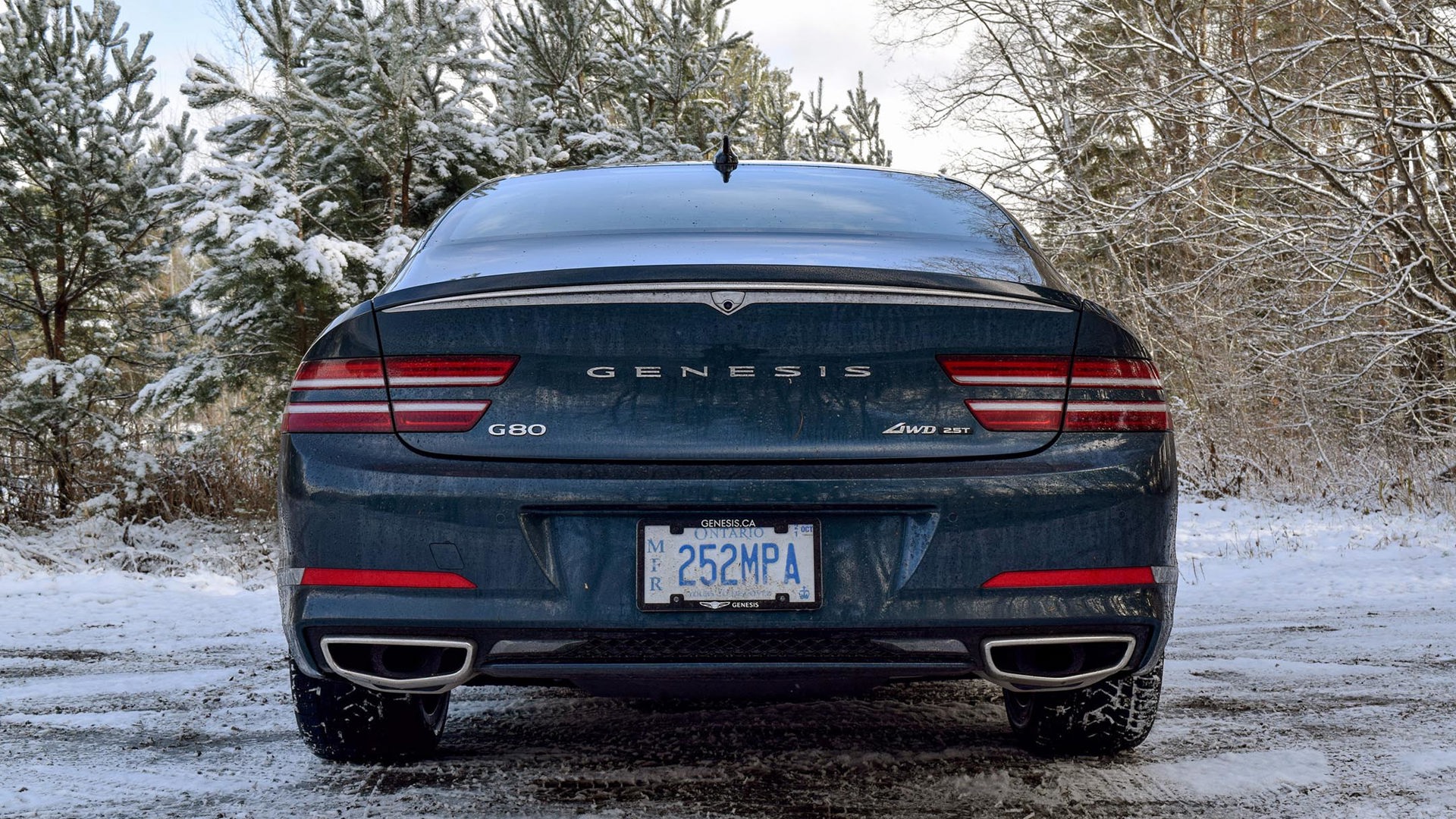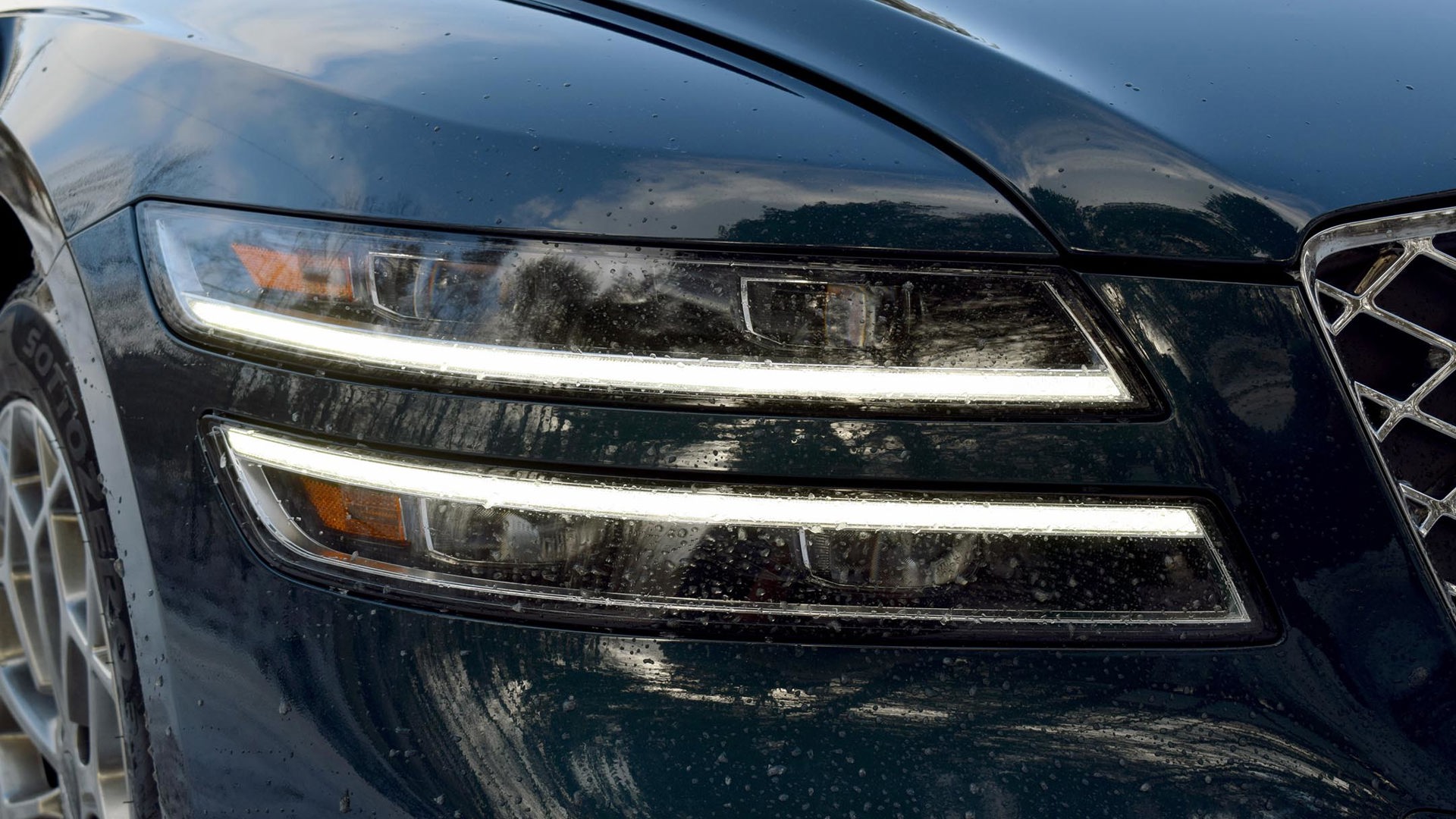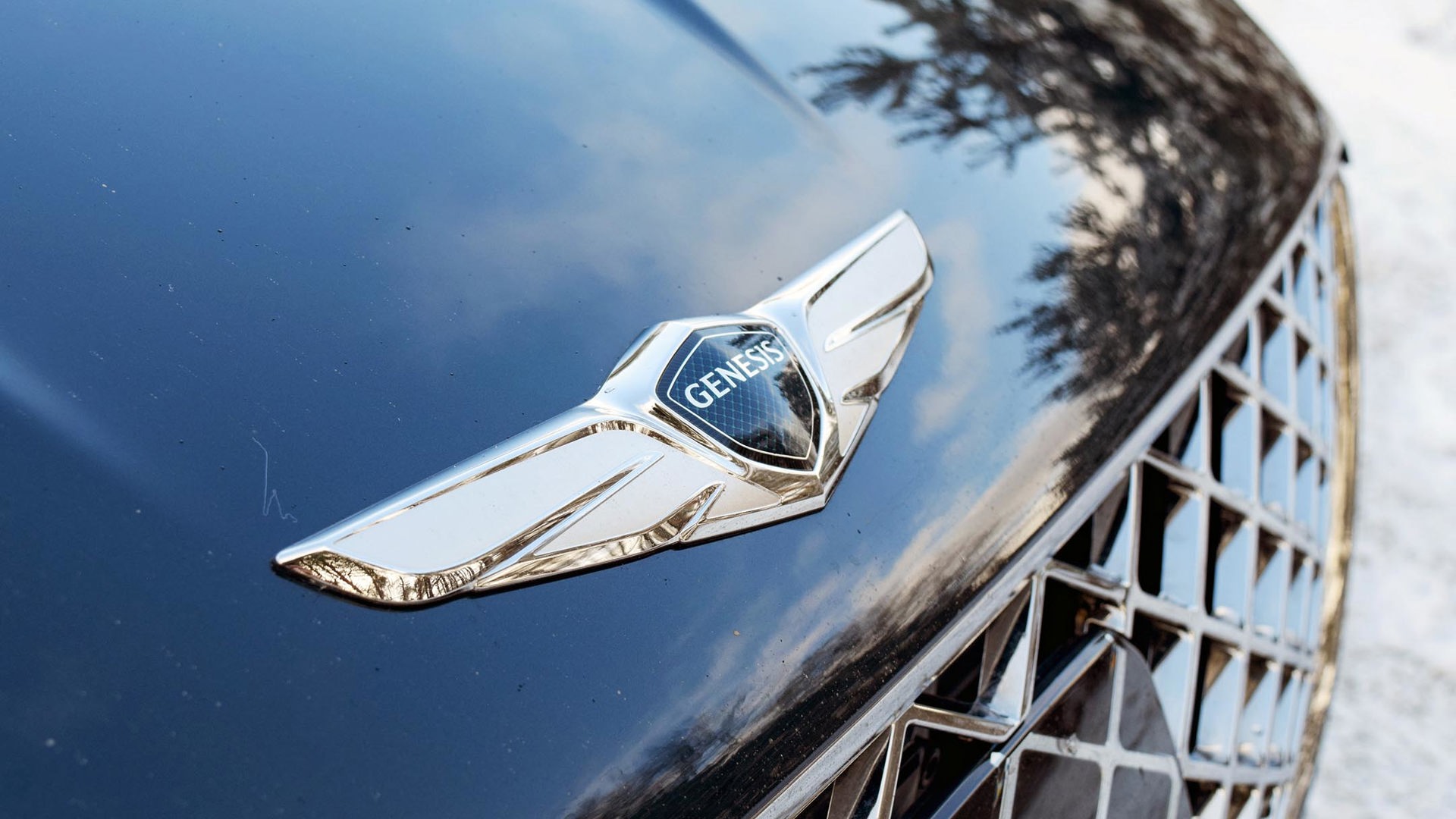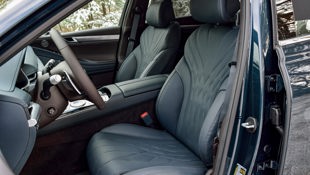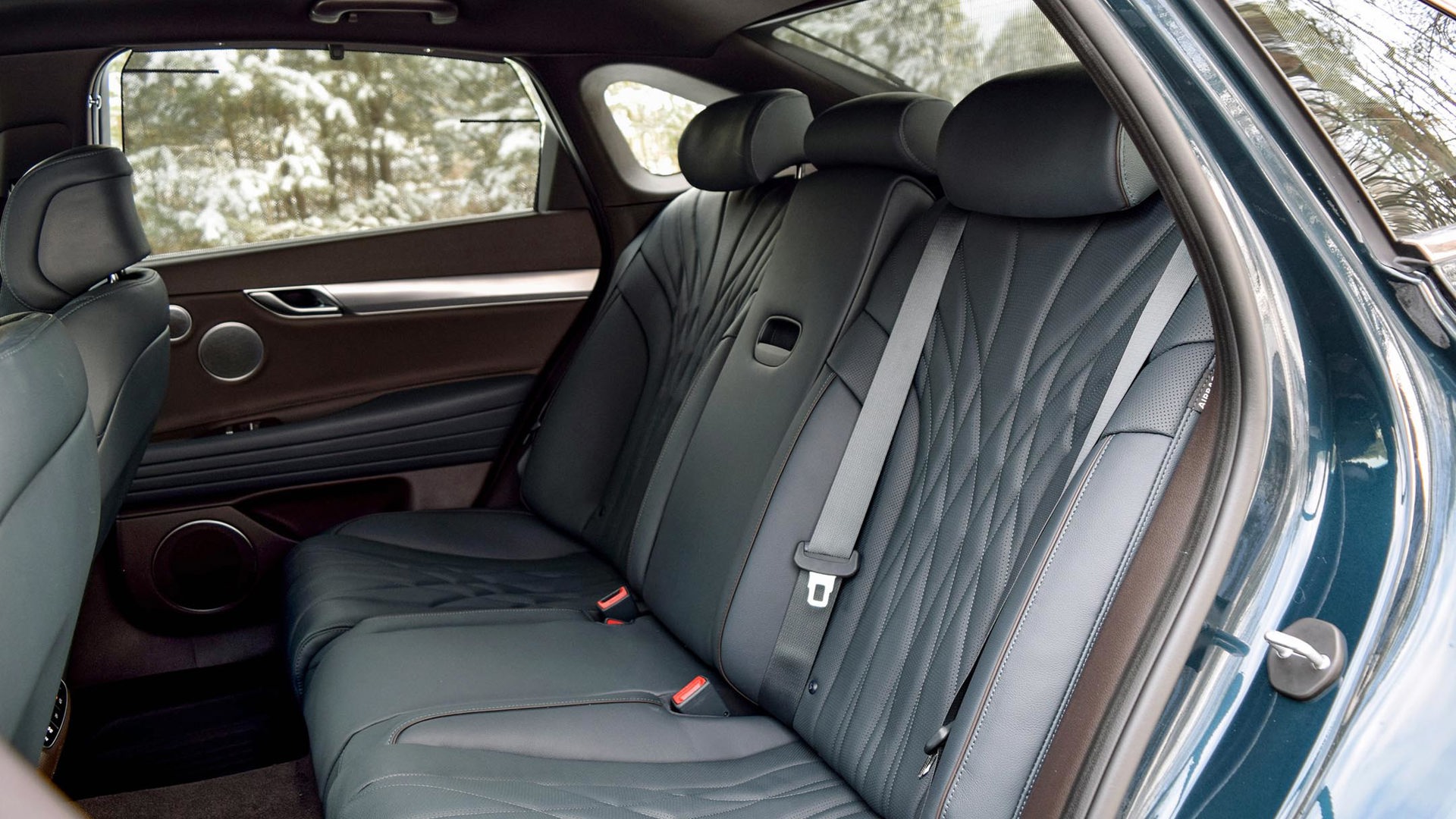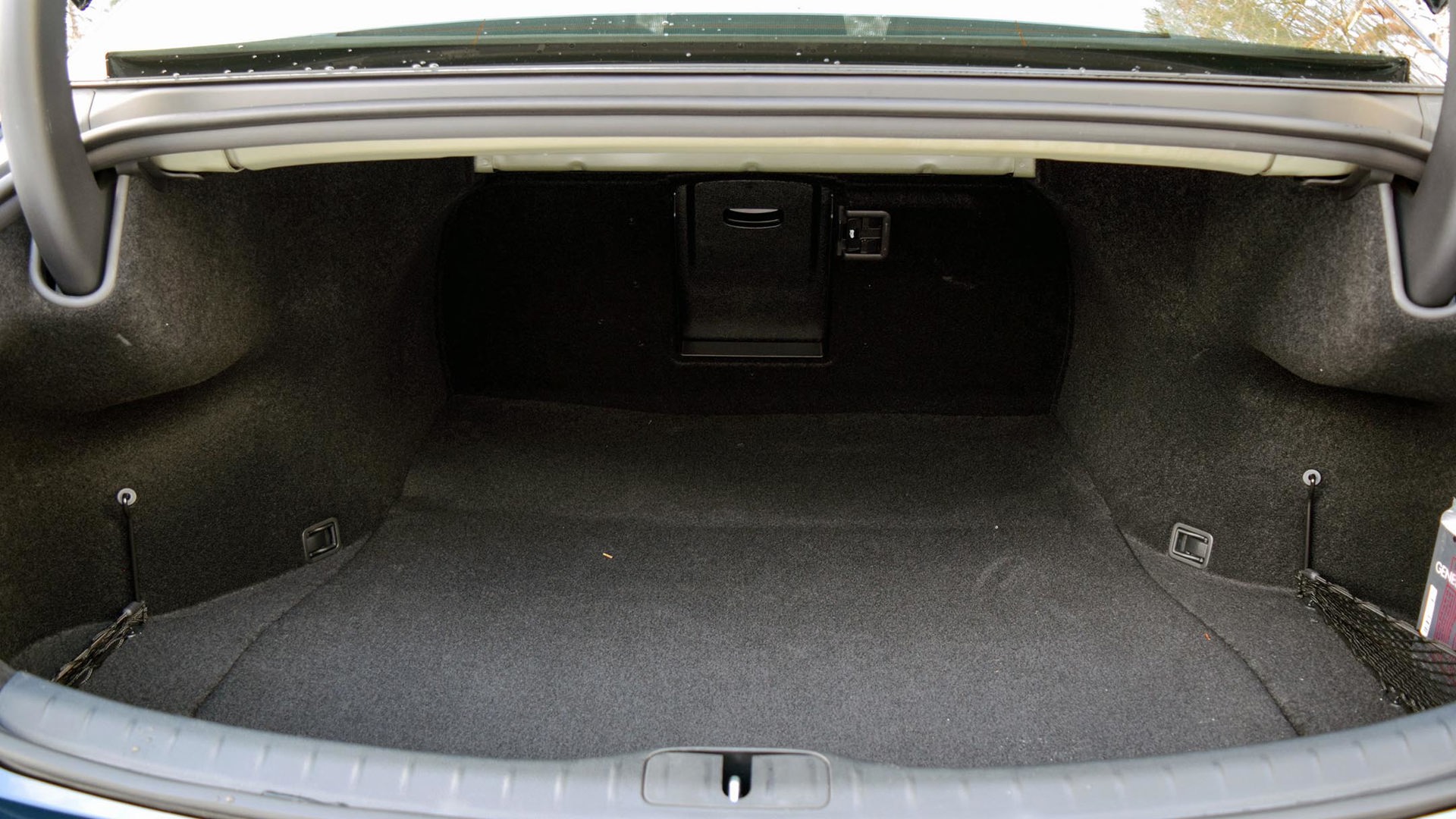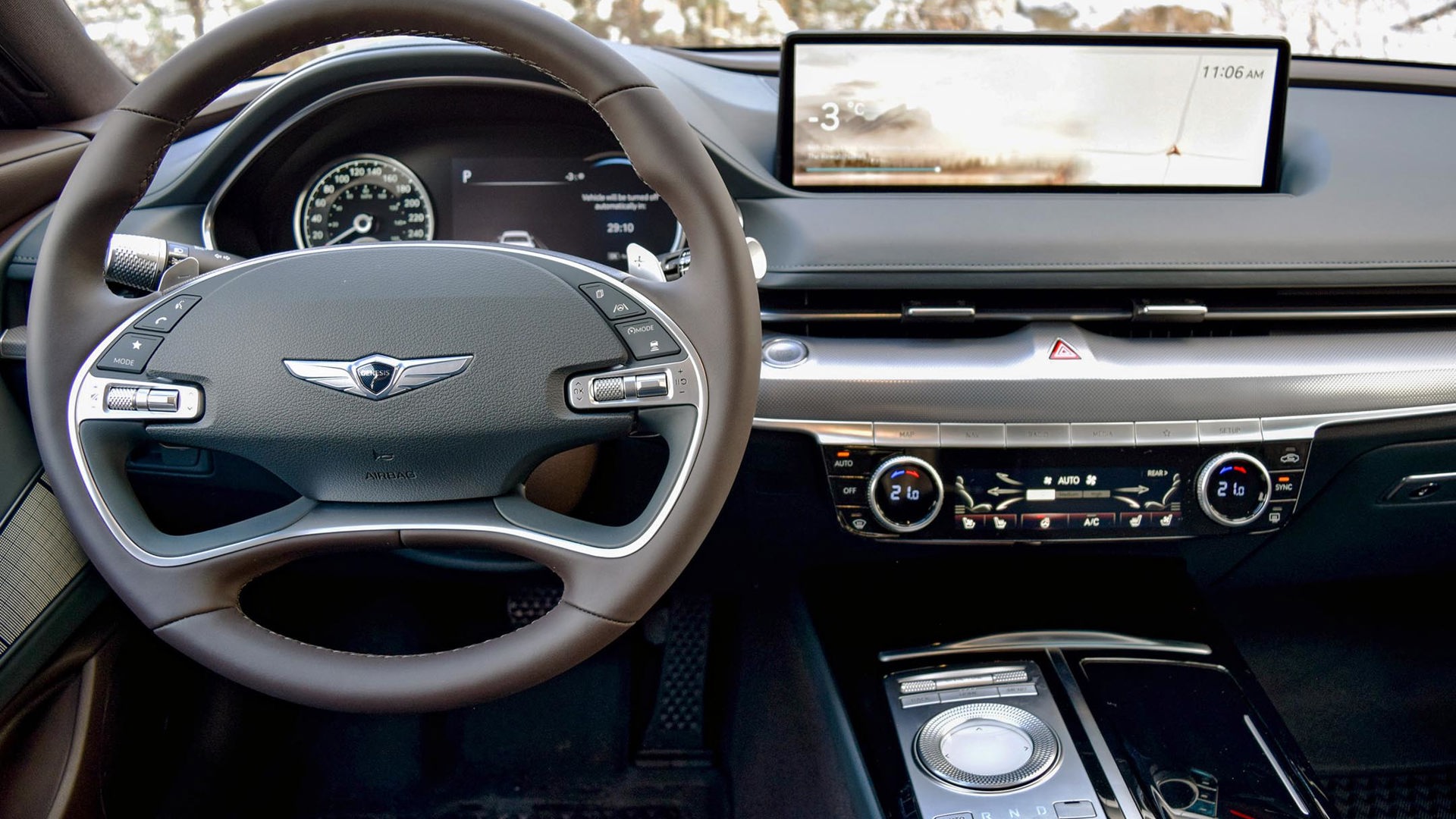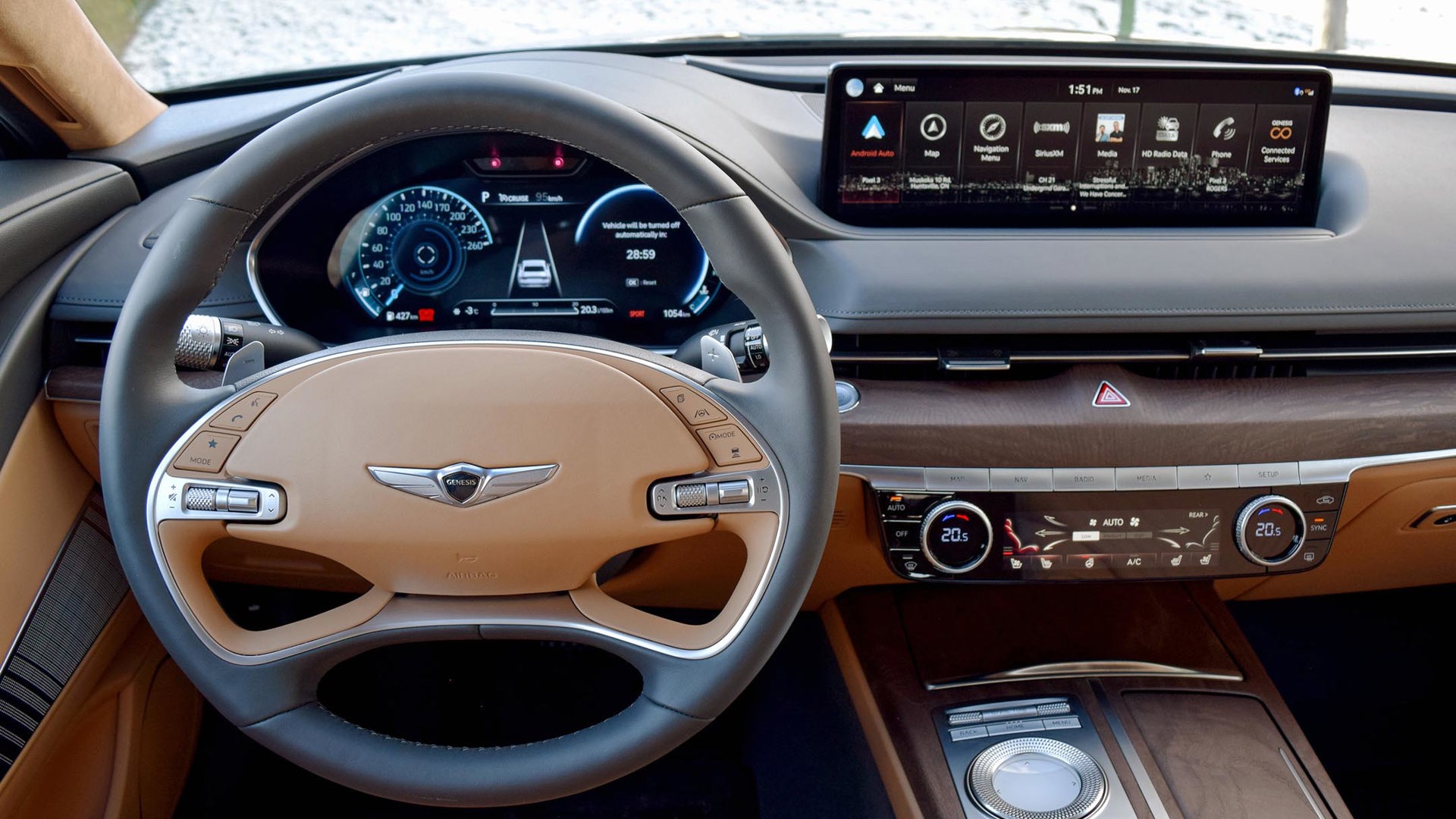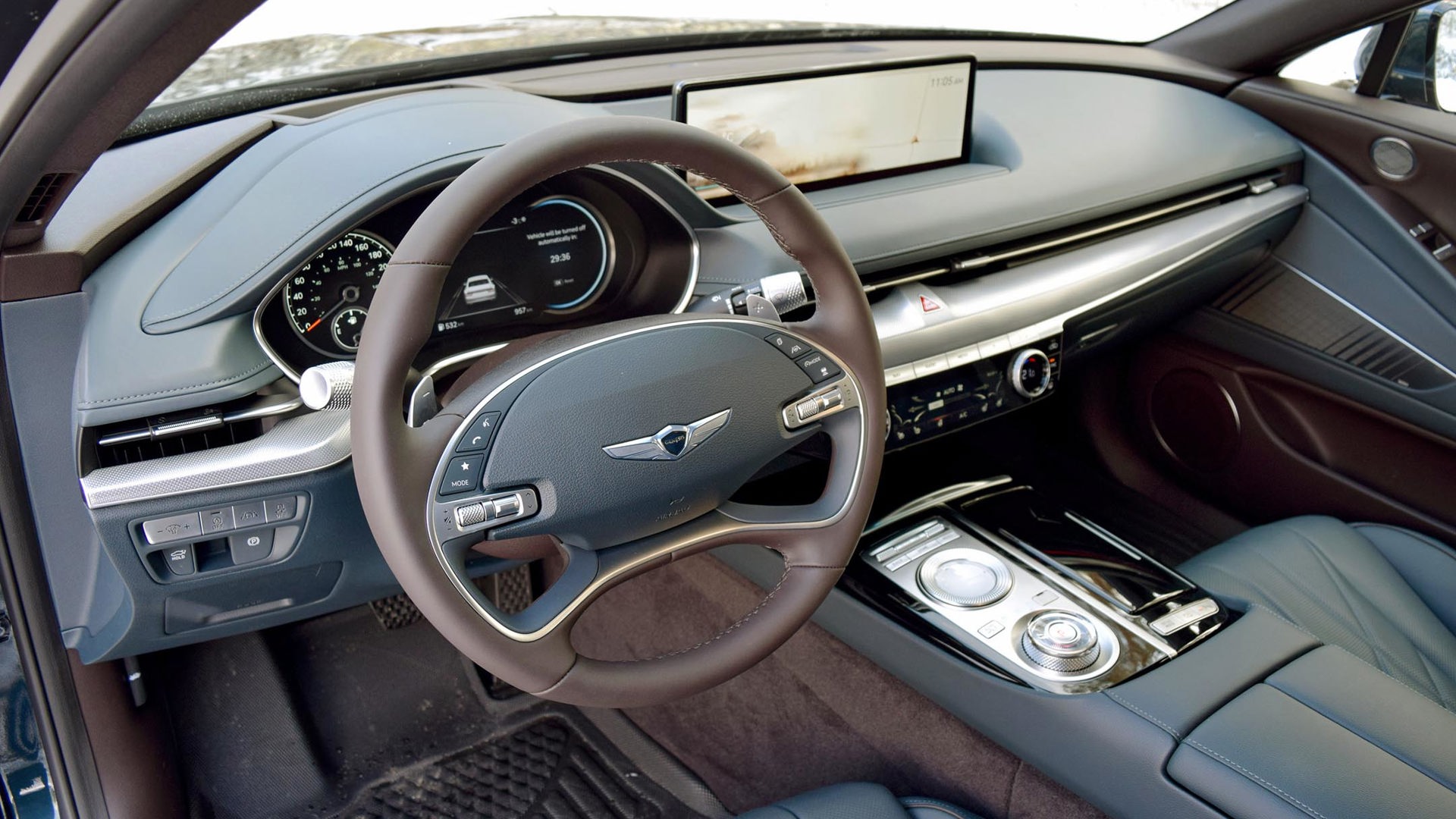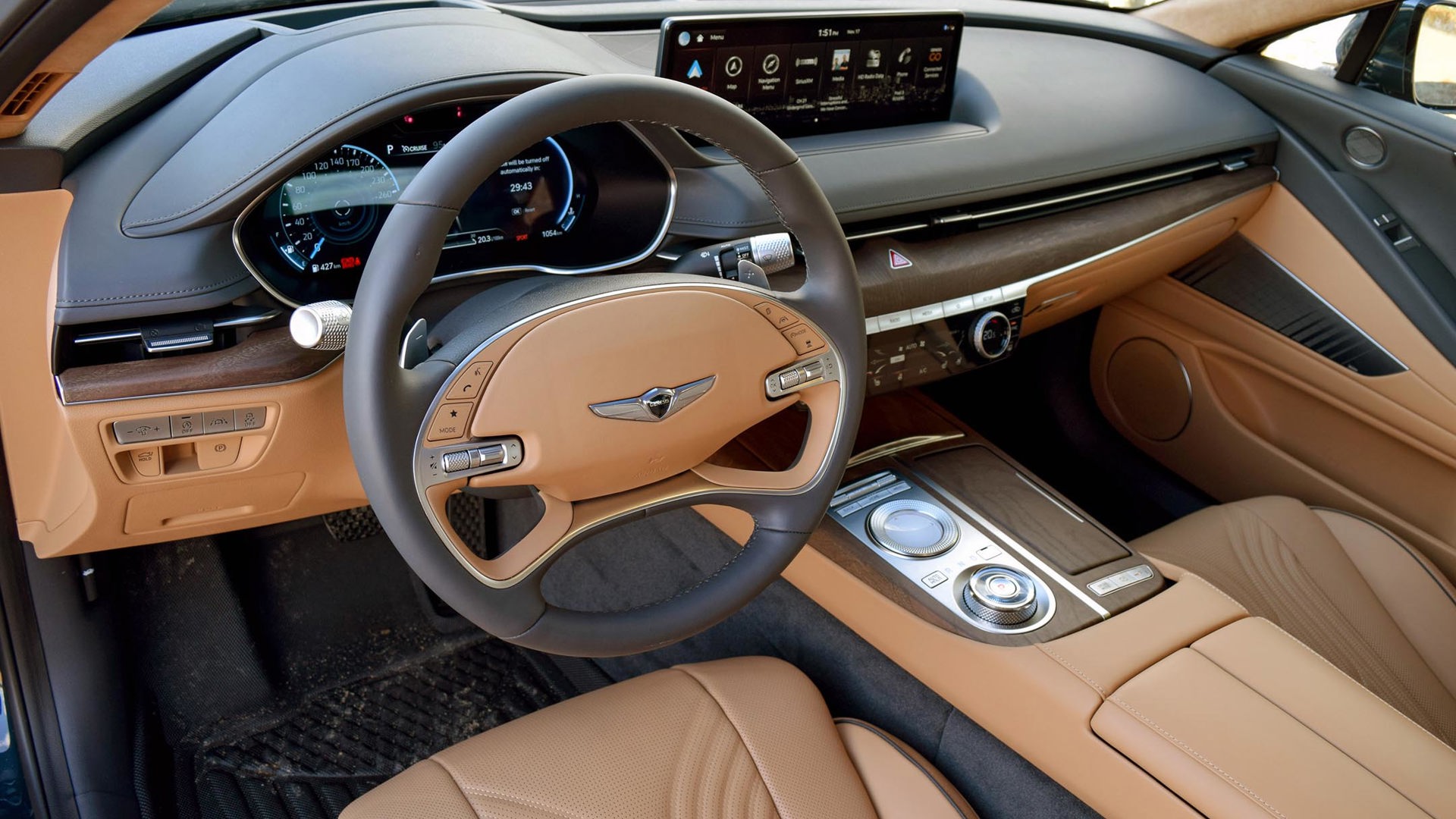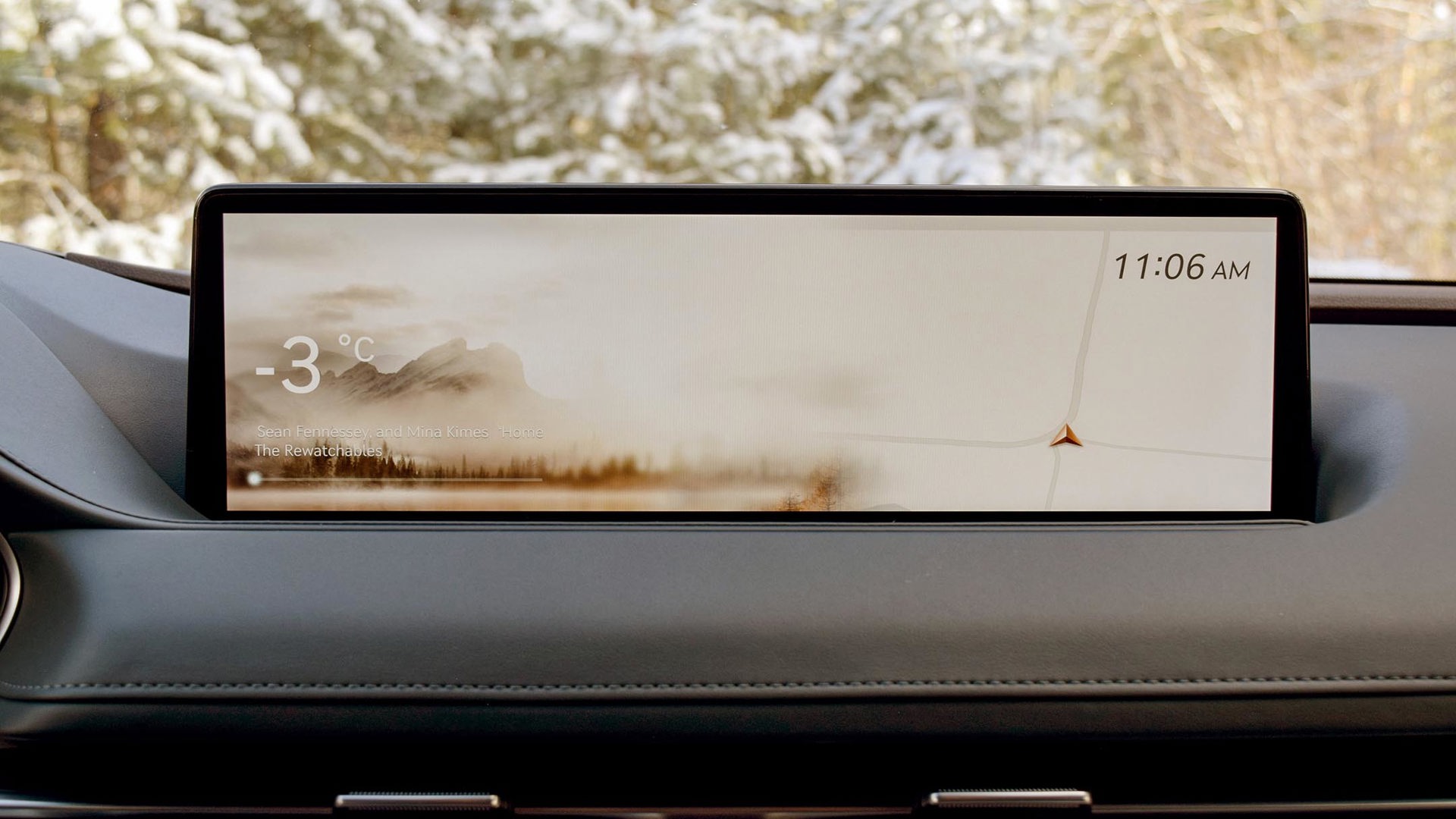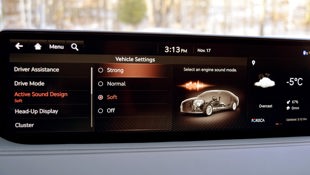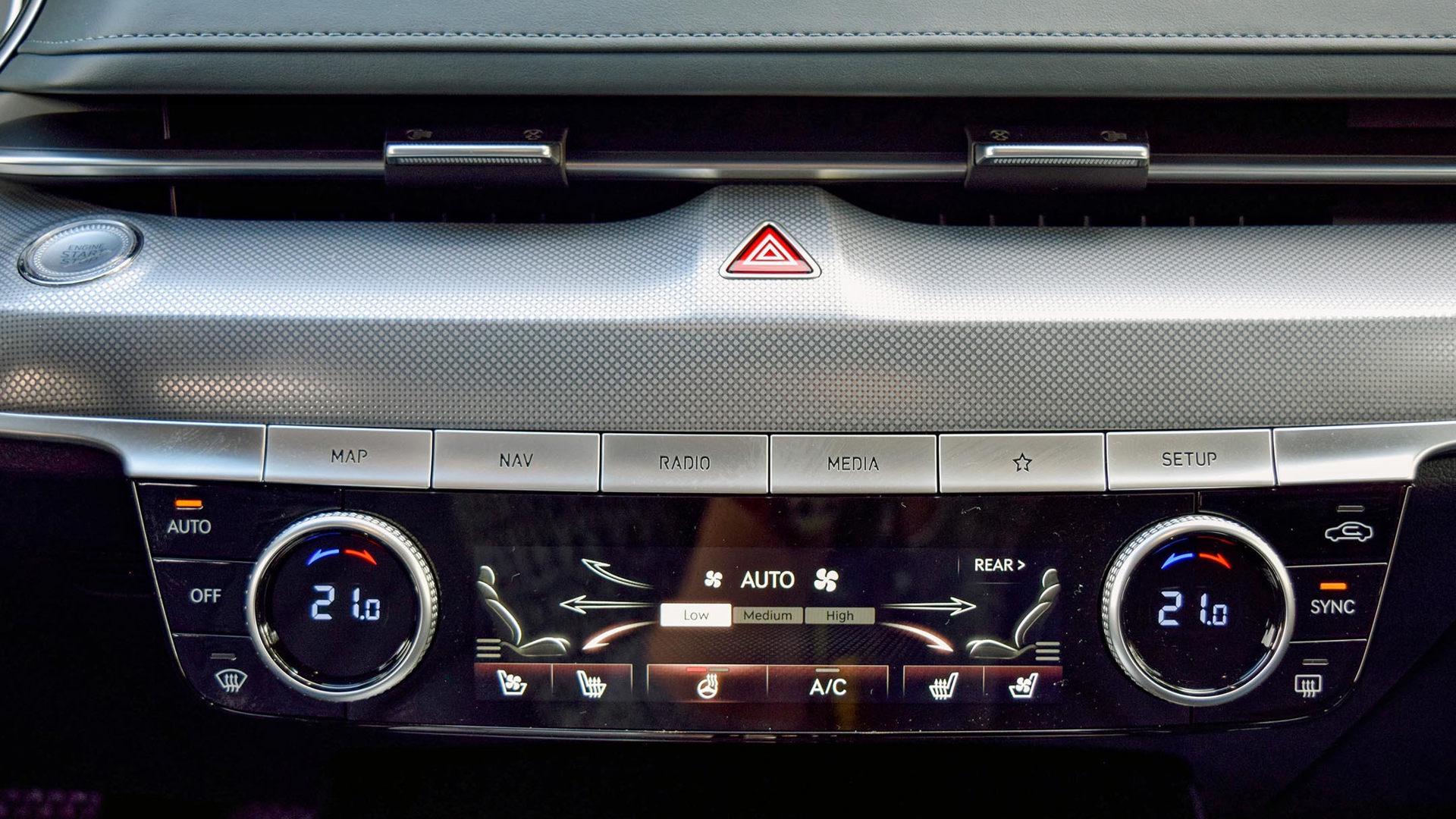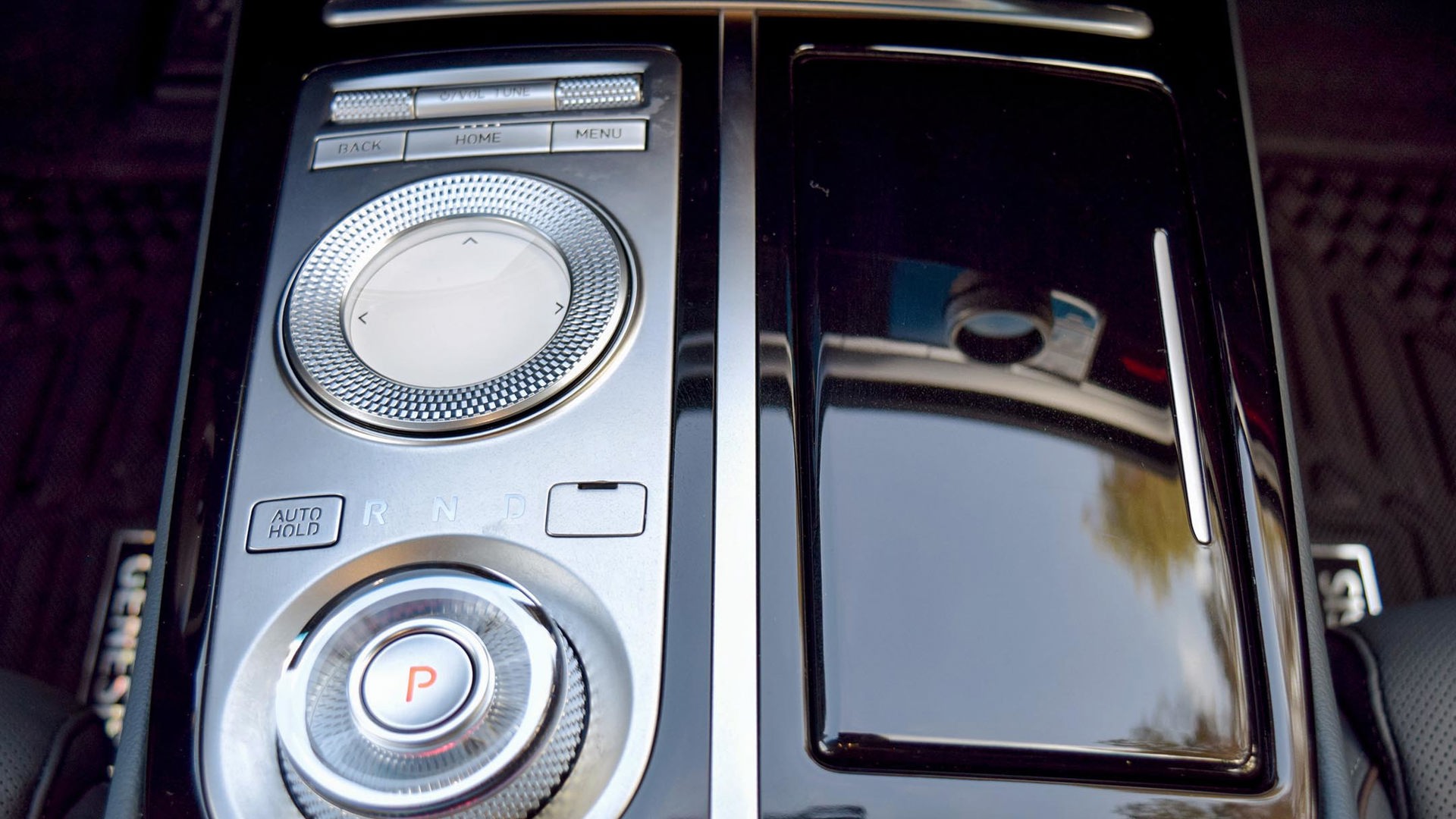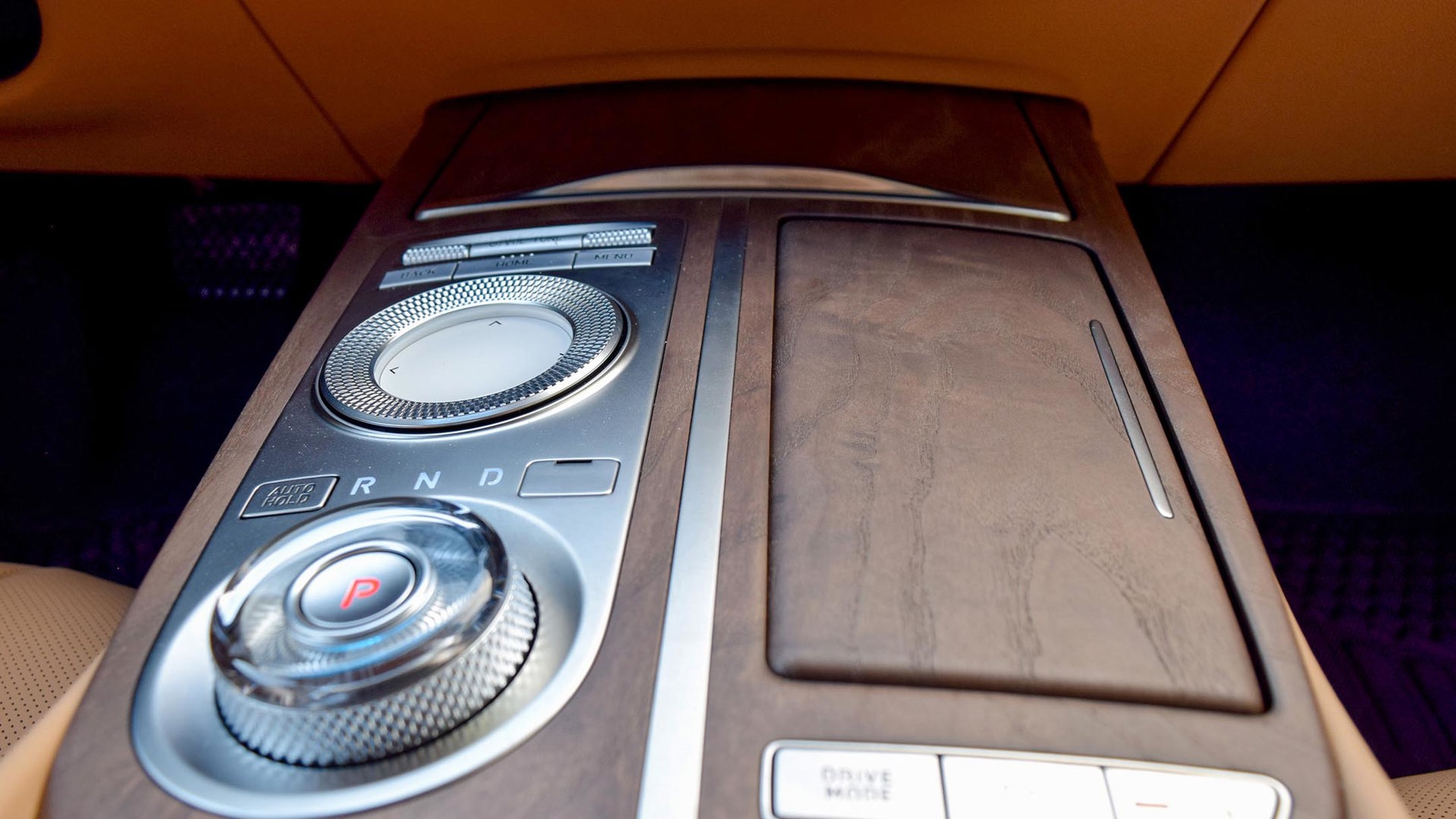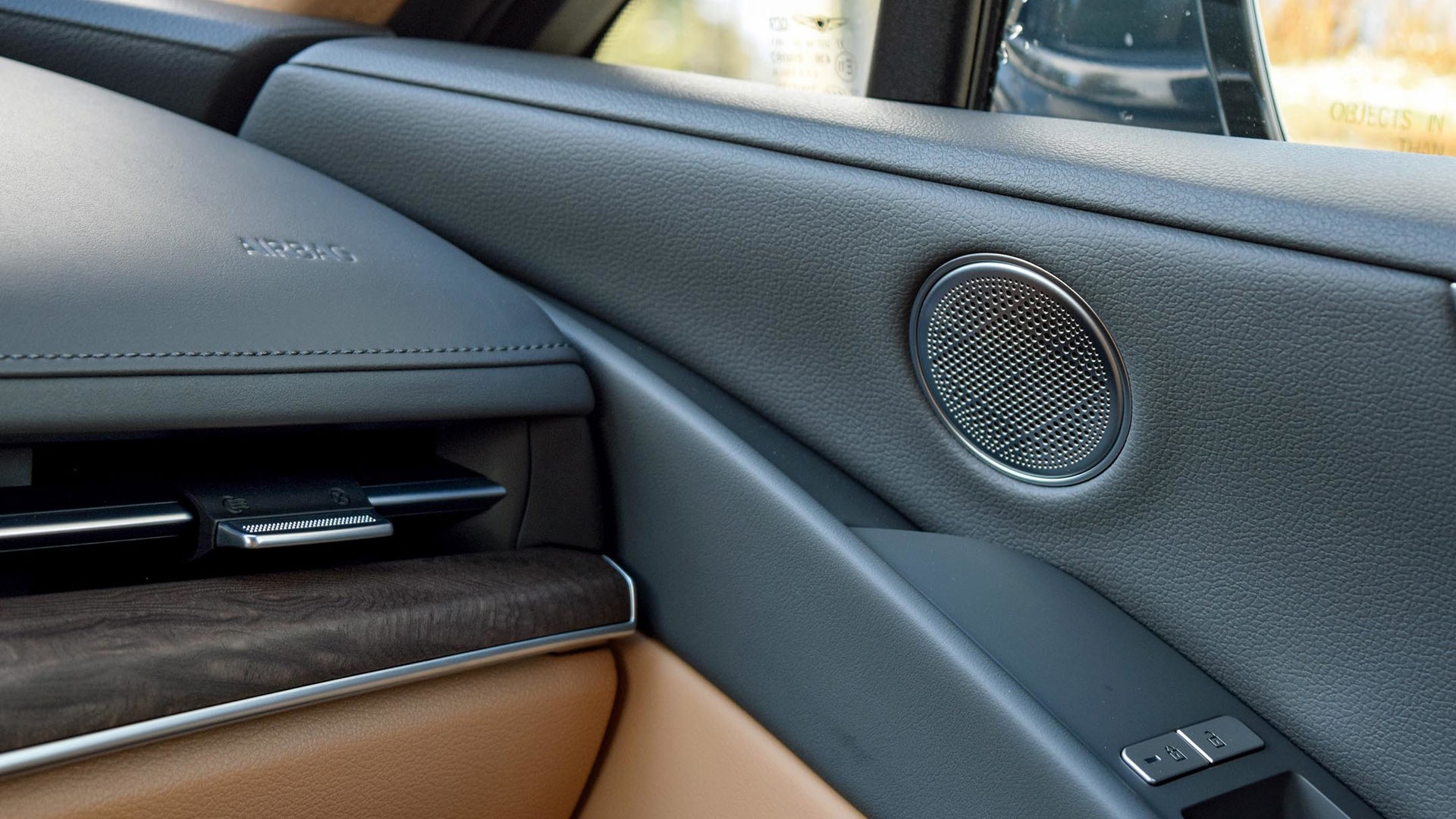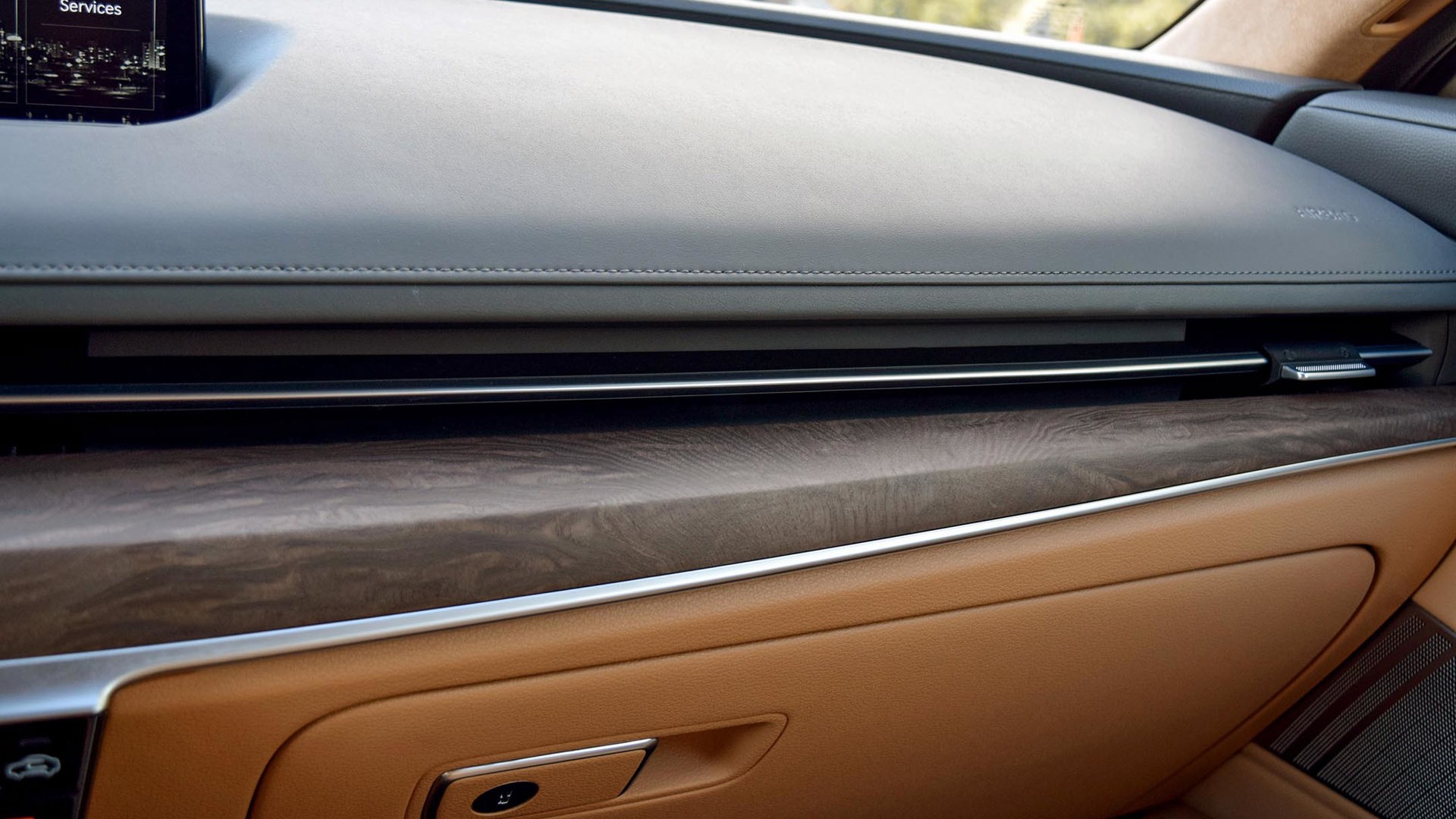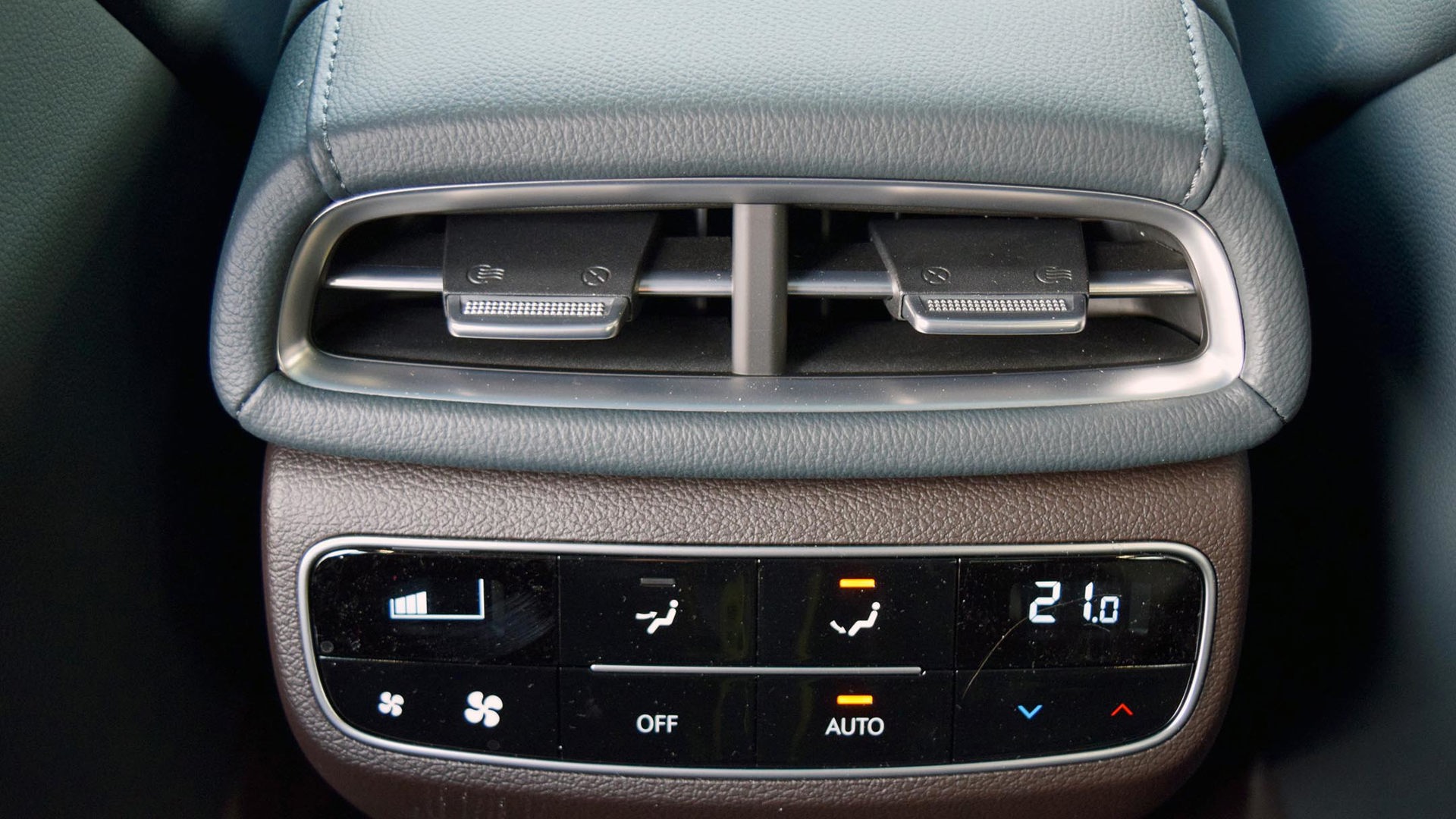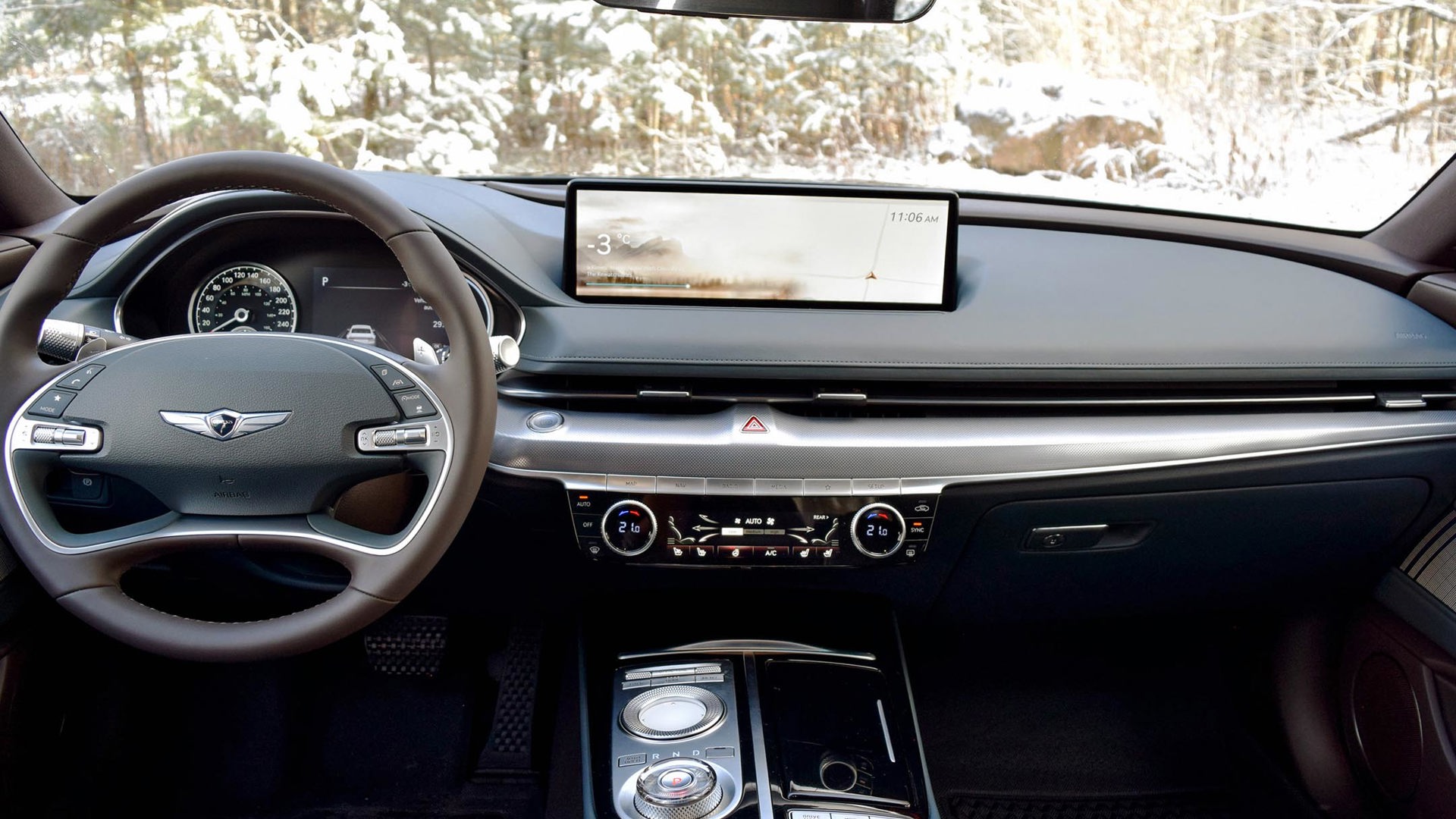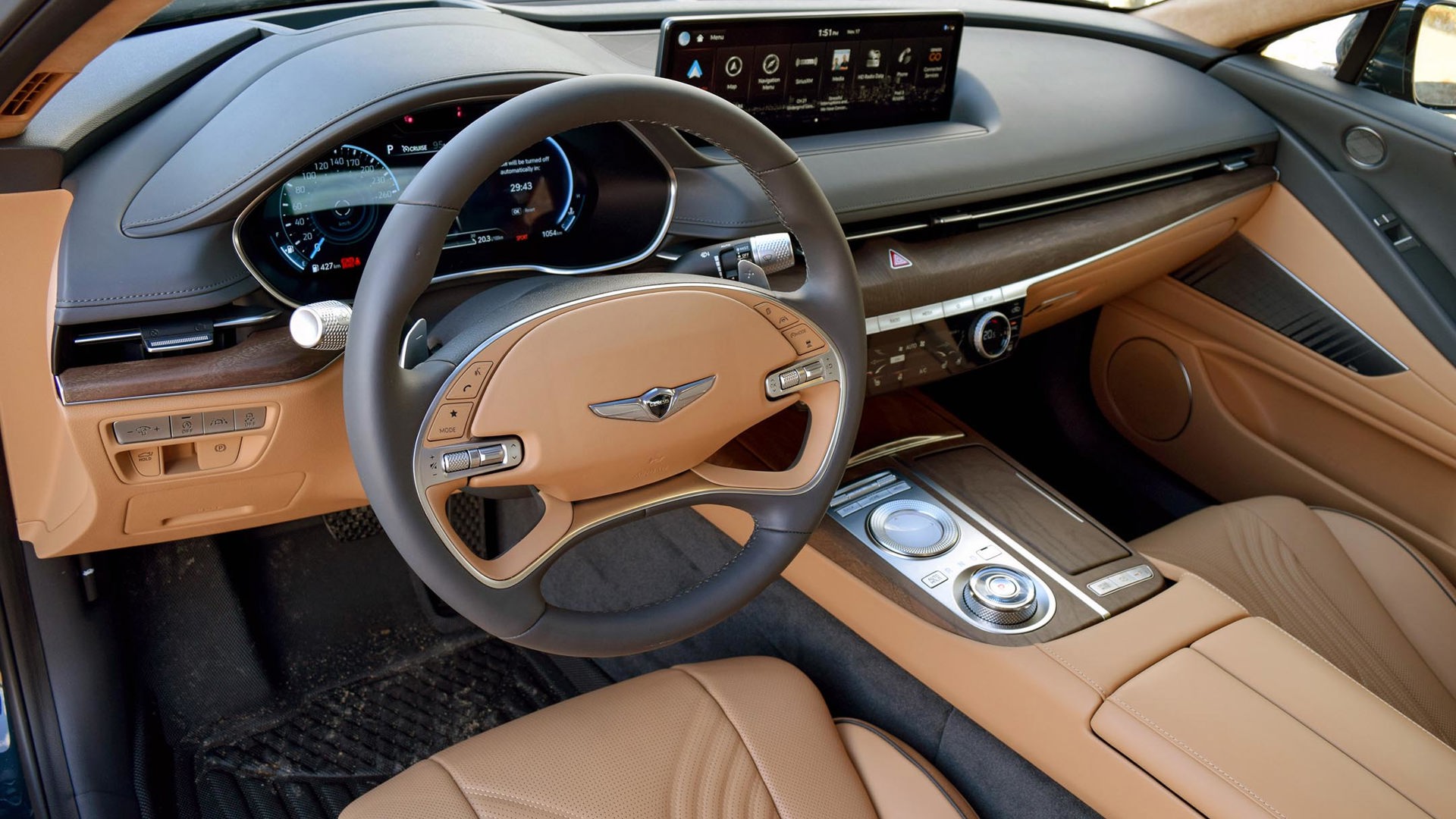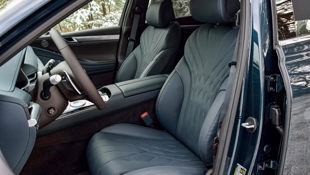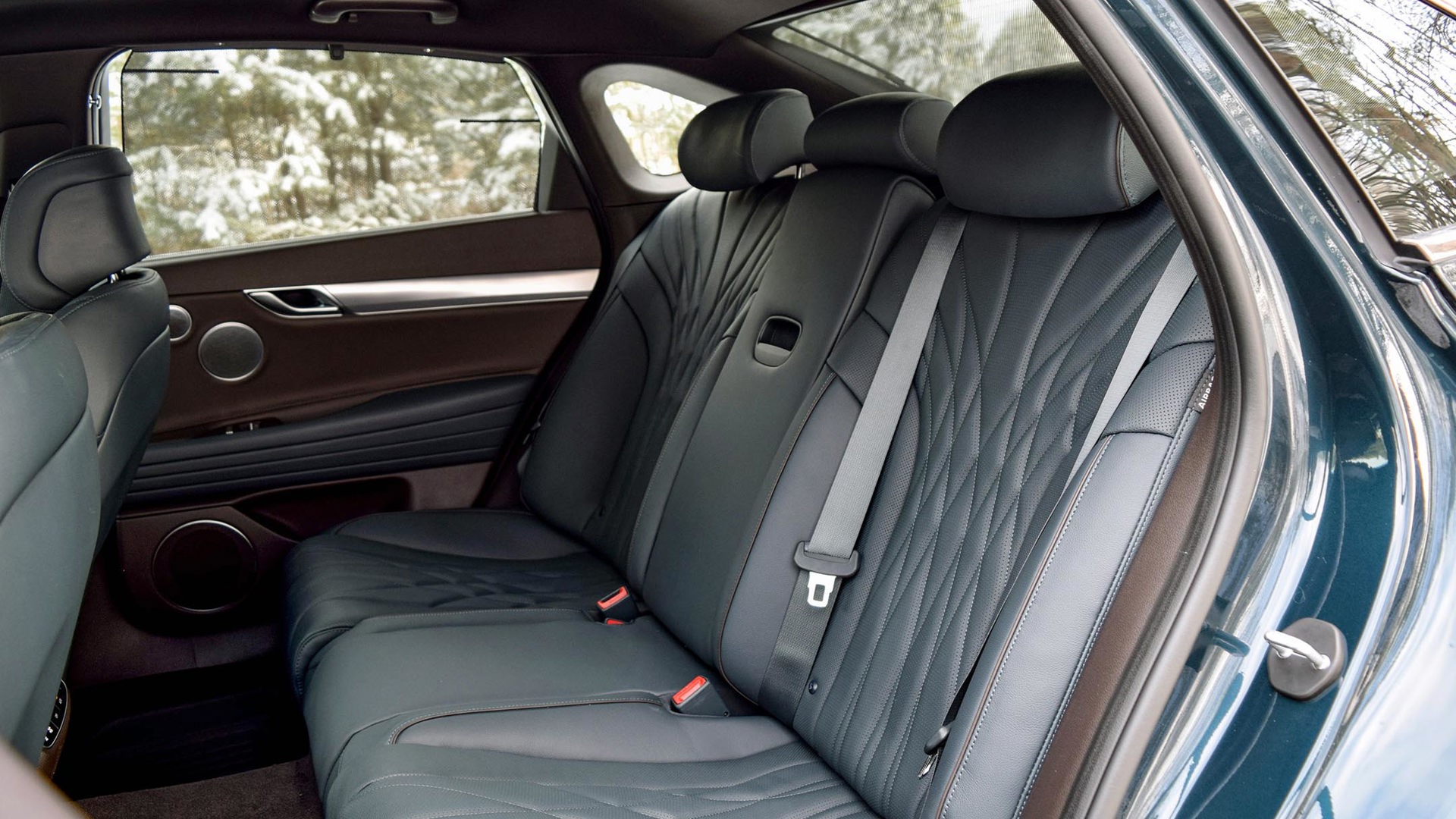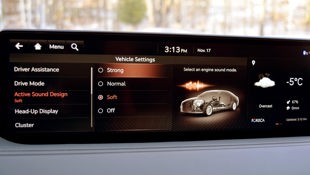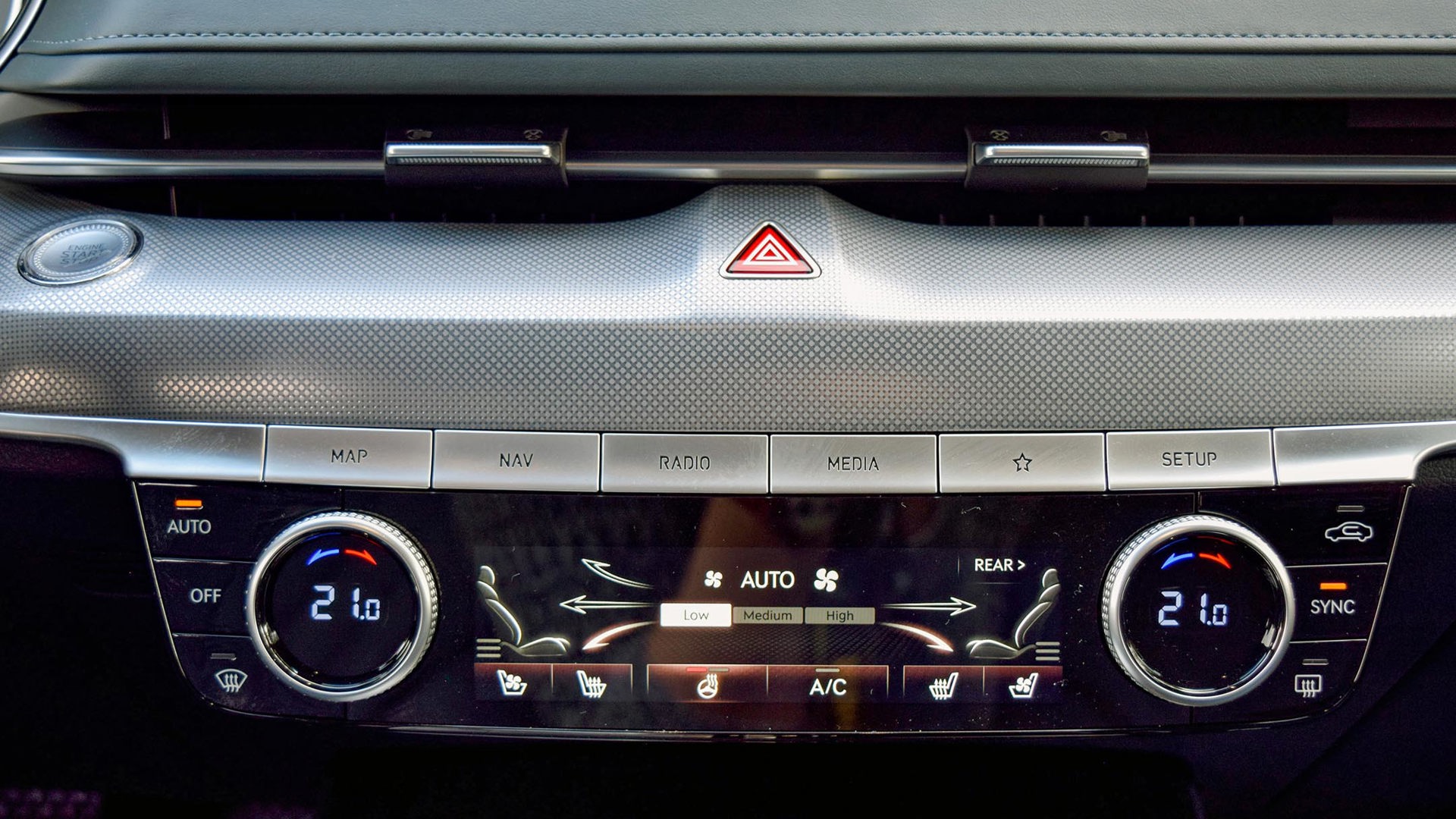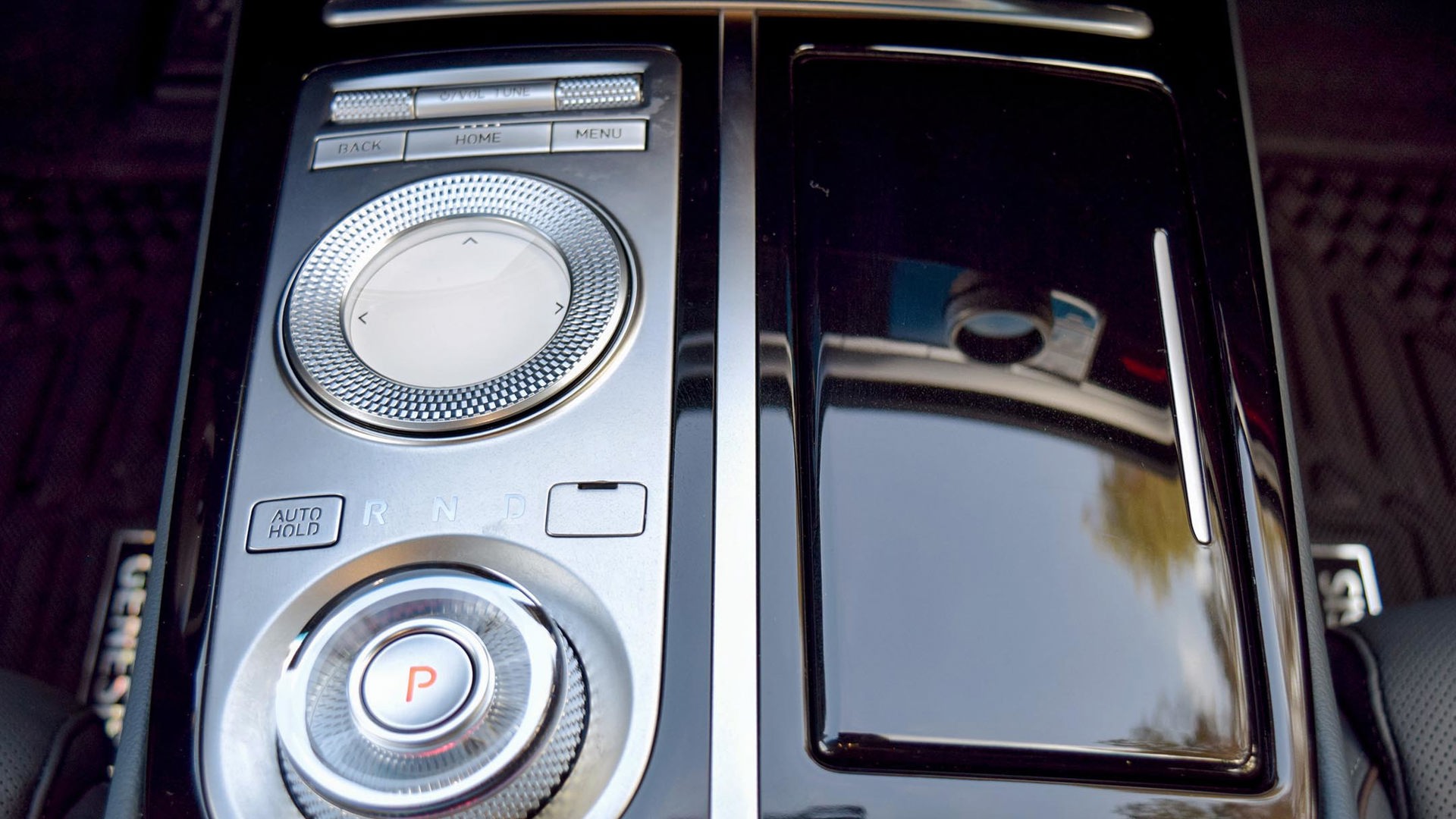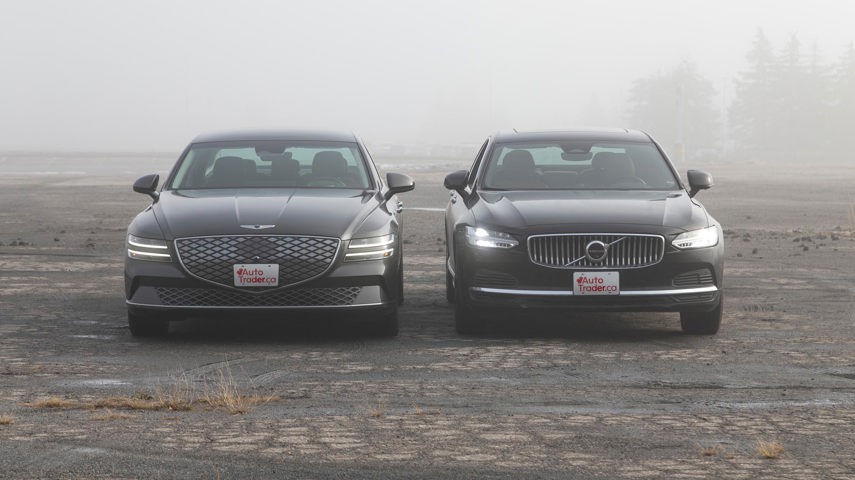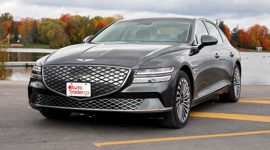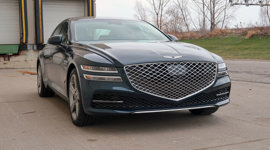Just four years ago, Genesis began flaunting what it had to offer in the luxury space.
A key component was the Genesis G80, which was a very competent and luxurious sedan with a significantly lower price tag than most competitors. Now it’s time for the 2021 Genesis G80, a redesigned version of the sedan that comes hot on the heels of the brand’s first SUV, the GV80.
With this second-generation version, it’s plain to see where the offshoot brand has applied all the lessons it learned the first time around, and how it plans to separate itself from the rest of the premium pack.
Design First
Presenting as a distinctly different luxury brand is a breeze when its vehicles look this appealing. Hyundai is quickly etching out its design language, defined as athletic elegance, and that extends to its premium brand, Genesis. The smaller G70 represents the sporty side of that lineup, while the flagship G90 sedan is opulent. Falling between them is the G80, and it’s a showcase of the best of both worlds.
The G80 design is expressive, and while the sedan features a large grille, this aspect of the exterior doesn’t overwhelm like others in the industry. Instead, details like the grille mesh and twin-line lighting signature stand out. These elements repeat both inside and out for consistency in design. Stand back and look at the G80 head-on to see the Genesis shield-and-wings logo represented by the grille and headlights.
When it comes to interior design, Genesis is trying out new and previously difficult-to-sell colour combinations. The brand is trying to make dark blue leather upholstery happen again, and it certainly looks fetching when paired with some brown leather highlights. There are also dark brown and light brown hides available, as well as the usual black and beige choices. The trim pieces also provide a bit of variety, as the real wood trim features an open-pore texture and design. These panels are like snowflakes: no two wood trim pieces will be the same.
The interior space is accommodating, and the seats are comfortable. There is an available ergo-motion seat, which acts as a massaging throne but prevents numbness on long drives; an automatic function kicks in to help you stretch during long road trips. The rear seats provide plenty of space and will prove to be acceptable for adults and kids.
Loaded With Tech
Like the GV80, this sedan pairs the pretty interior with a clean upper dash layout. This design showcases the automaker’s tech expertise through the 14.5-inch infotainment screen and available 12.3-inch 3D gauge cluster. The HVAC controls use buttons, screens, and knobs to get the job done, which may seem overwhelming. Fortunately, the screen has a smartphone-like proximity sensor to ensure there are no accidental selections while using the surrounding physical controls.
The G80 also uses the same rotary gear selector and iPod click-wheel-esque infotainment controller as its GV80 sibling. The switchgear is elegant and operates as expected. The large screen is also touch-capable, and it feels like less of a stretch to reach the screen than it was in the GV80. All models of the G80 get a 21-speaker audio system, with 1,050 watts of output.
While a head-up display (HUD) is standard equipment in all models of the G80, the top trim features a 12.3-inch digital gauge cluster that sports a spiffy 3D effect, projecting information with a touch more pizzazz than other luxury vehicles. The non-gimmicky application is for those who are unable to see the HUD while wearing polarized lenses, but beyond that, it looks like something to show off to BMW-driving friends.
Under the Hood
Again, the G80 shares hardware with the GV80 under the hood. All versions are all-wheel drive and feature an eight-speed automatic transmission. The standard engine is a 2.5L turbocharged four-cylinder, rated for 300 hp and 311 lb-ft of torque. Those looking for more power can opt for the 3.5L twin-turbocharged V6 engine that makes 375 hp and 391 lb-ft of torque.
Both engines are above average, but not as impressive as other aspects of the vehicle, like the design. The four-cylinder feels faster than similarly powered luxury sedans like the Audi A6 or BMW 5 Series. The four-cylinder sounds uninteresting, though it features an amplified engine sound that can be enhanced or disabled as you see fit. Something about the larger engine lacks the exhilaration found in other six-cylinder rivals, but it certainly is smooth.
Soft, Not Sporty
More time is needed to assess which of the two powerplants is the better pick, but both are good enough for Genesis to employ in this segment. The ride of the Genesis is also on par with others in the marketplace. It delivers a smooth, limo-like quality, while an available electronically controlled suspension utilizes the forward collision prevention hardware to preview the road ahead and prepares the dampers for any ride-jarring interruptions. As a whole, the drive feels soft as though the vehicle is gliding on the road.
While executive sedans like the G80 can sometimes push into driving like a sport sedan, the Genesis doesn’t feel overly agile or athletic. It was responsive to inputs, but if you drive like the road is your racetrack, you’ll come away disappointed.
Top-Tier Safety
However, the safety and driver-assistance features of the Genesis G80 managed to impress. Standard equipment includes forward collision avoidance, high-beam assistance, rear cross-traffic alert, a surround-view monitor, blind-spot monitoring, lane-following assistance, adaptive cruise control, and a smart exit assist that warns of approaching cyclists or vehicles when attempting to open the doors.
The G80 also comes standard with a highway driving assistance feature that combines adaptive cruise control with forward collision avoidance, lane-keeping assistance, and lane-changing assistance into one confident-inspiring system that’s meant to reduce the tediousness of freeway driving. It’s a well-executed feature that’s smart enough to adjust to your driving style. The car can adjust its distance, acceleration, and reaction speed to better match your style, which is unique in this industry.
Safety and driver aids on higher trim level models include a driver-facing camera that helps to prevent distracted or drowsy driving, a remote parking feature, and a parking exit feature that will warn you of oncoming traffic when departing a parking space.
Pricing and the Genesis Advantages
Genesis is also simplifying the model and pricing structure of the G80: there are only two trims to choose from. The 2.5T Advanced will sell for $66,000, while the 3.5T Prestige will sell for $76,000. Both models feature many of the same core features, including the 14.5-inch infotainment system, HUD, an impressive panoramic sunroof, and most of the safety and driver aids.
The 3.5T Prestige not only adds the bigger engine but also arrives with the 3D gauge cluster, the more advanced suspension system, the ergonomically minded seat, and 20-inch wheels compared to the 19s found on the 2.5T equipped model. You can call it fully loaded, but the 2.5T model doesn’t lack any significant features. The two models also don’t appear that different, making the vehicle stand out no matter which trim you get.
Tying all of this together is the way Genesis is selling cars. Call it a manufacturer direct model, with the brand operating with online purchasing without needing to step foot inside a dealership. It also offers an at-home test drive experience where the car can be brought to you.
Final Thoughts
The second-generation Genesis G80 executes many excellent details to help complete the profile of a successful luxury sedan. It’s more refined and stylish but also features more high-tech innovations. Its performance wasn’t particularly thrilling, but most buyers will find the G80 to be a smooth and classy operator. The final piece of the puzzle includes its excellent pricing, which should all add up to help make the G80 a smart purchase for many luxury car shoppers.
